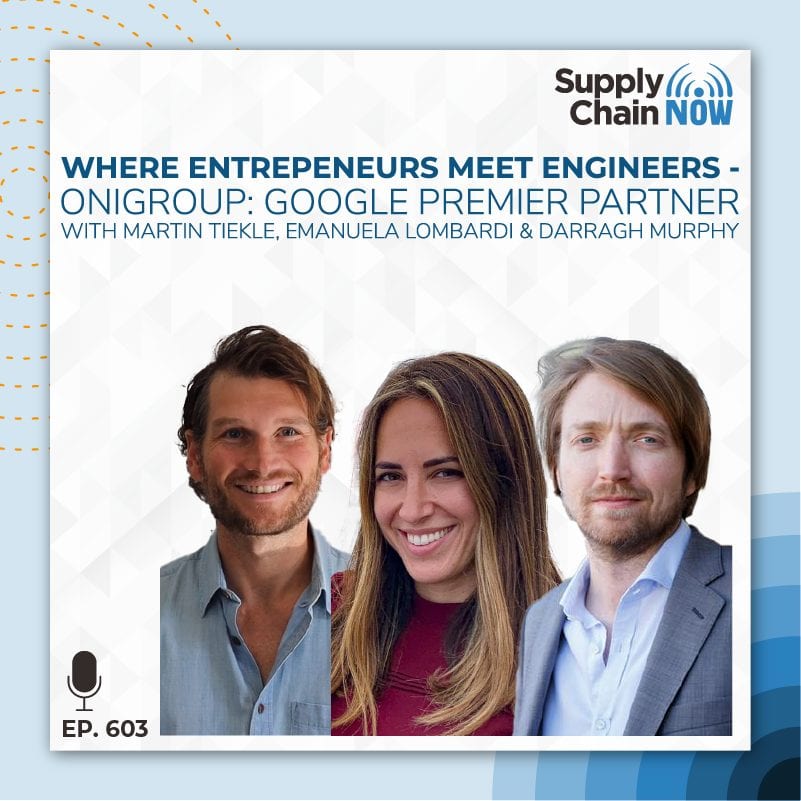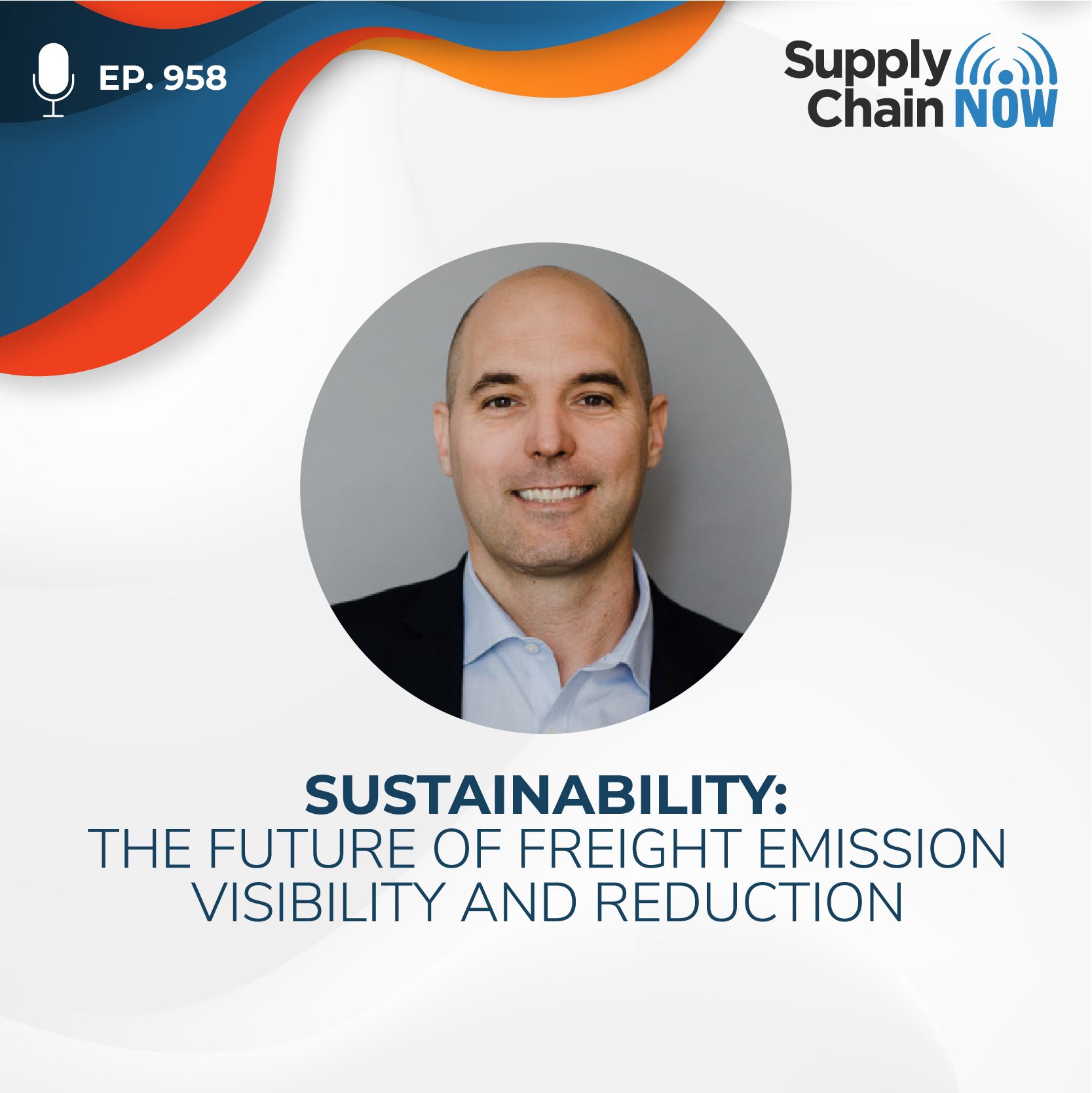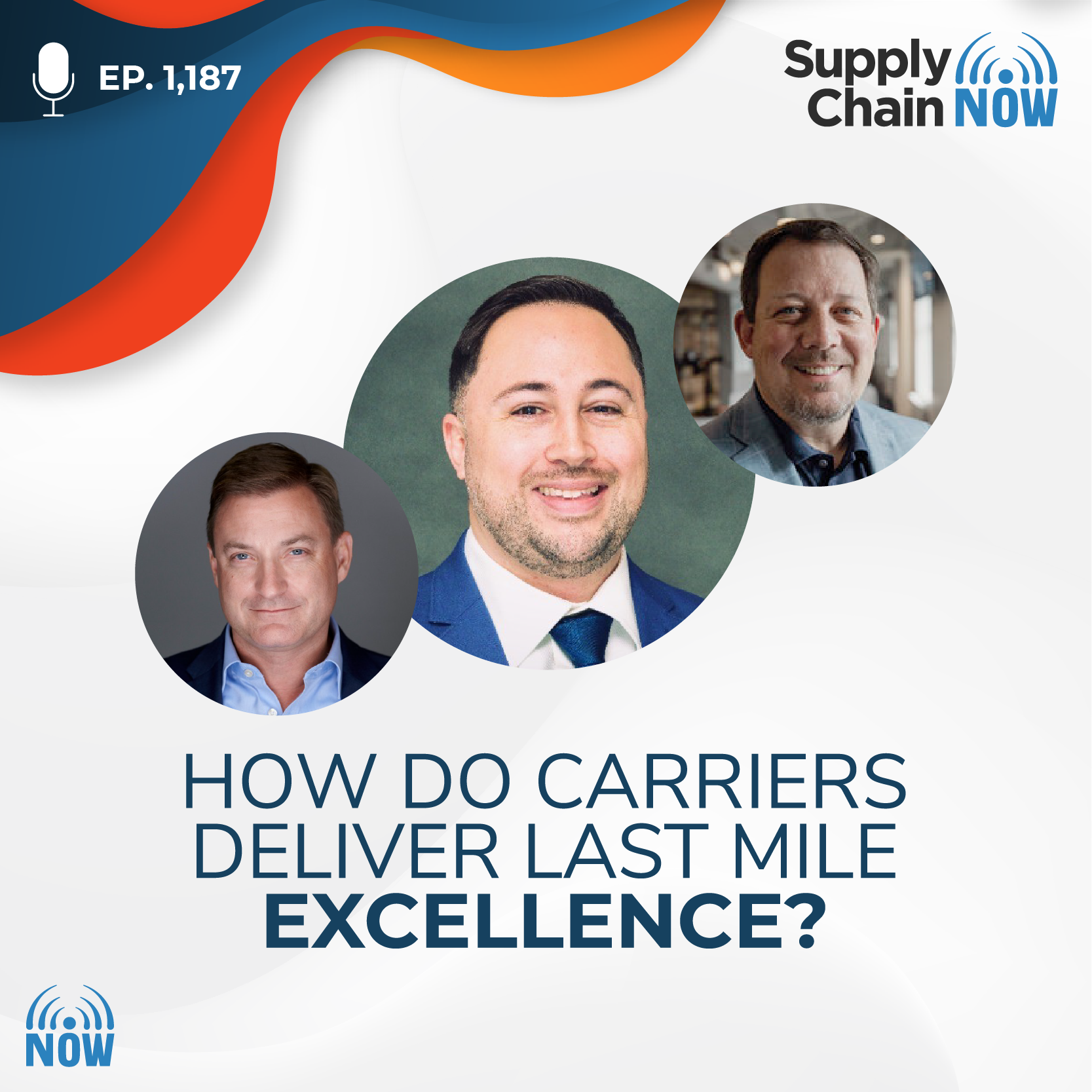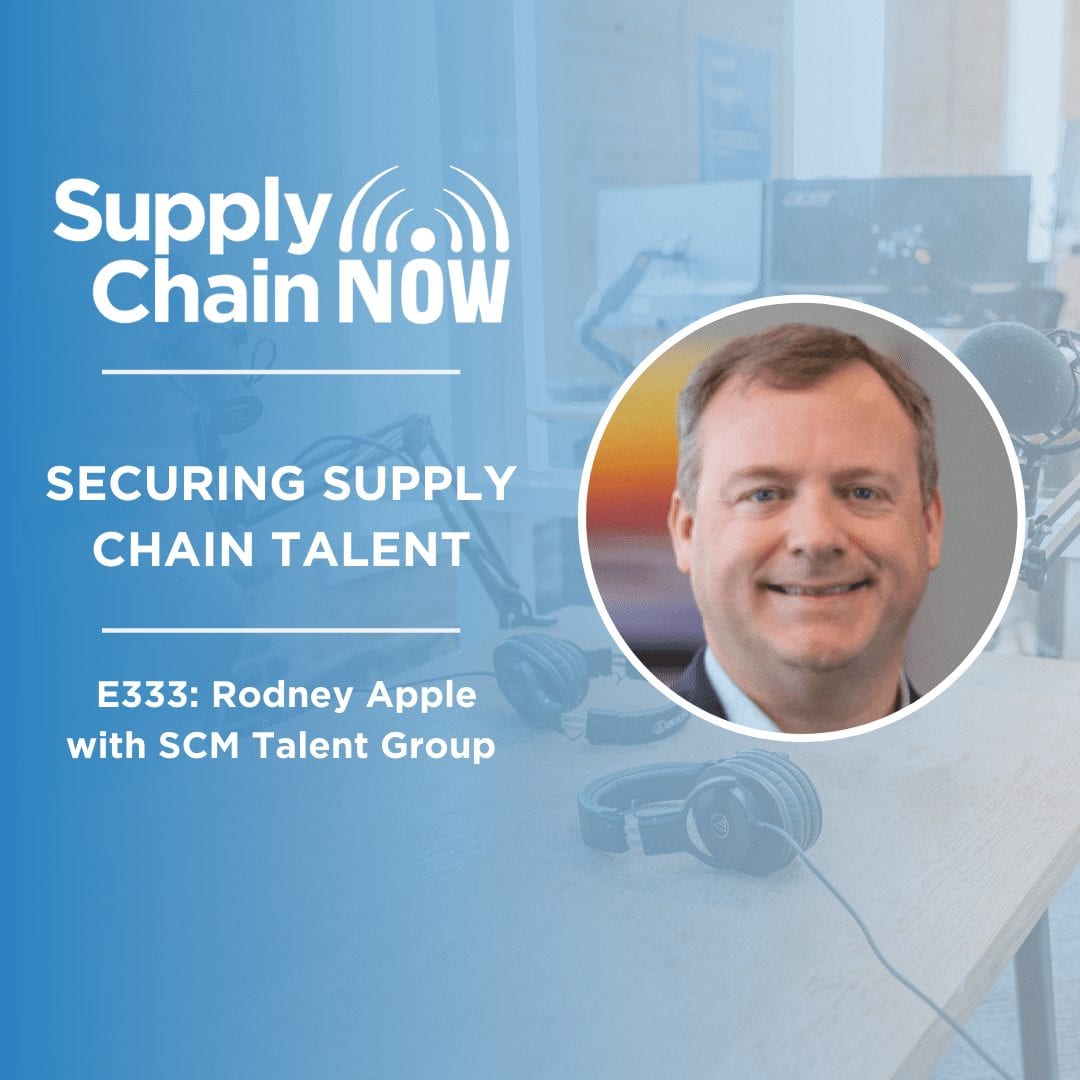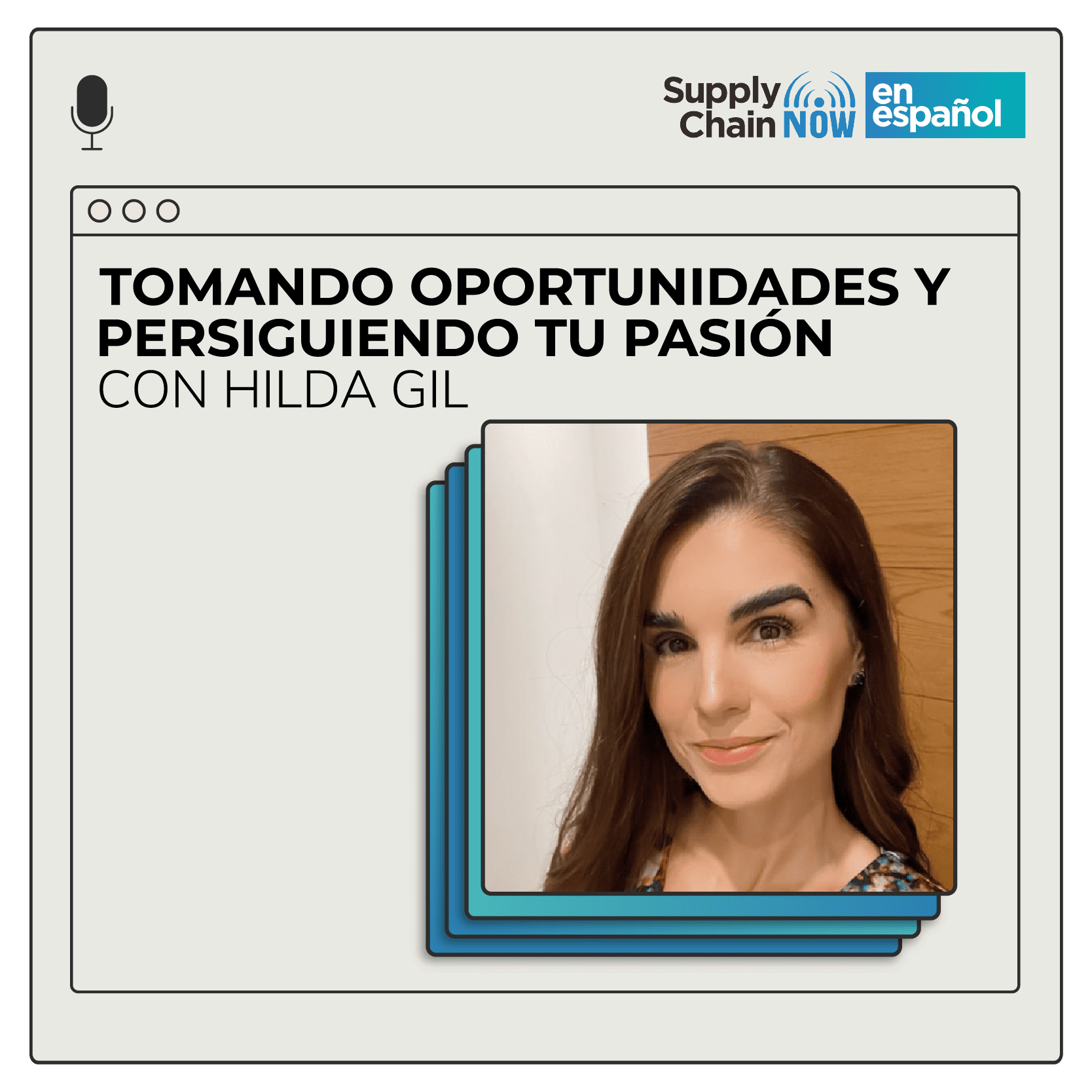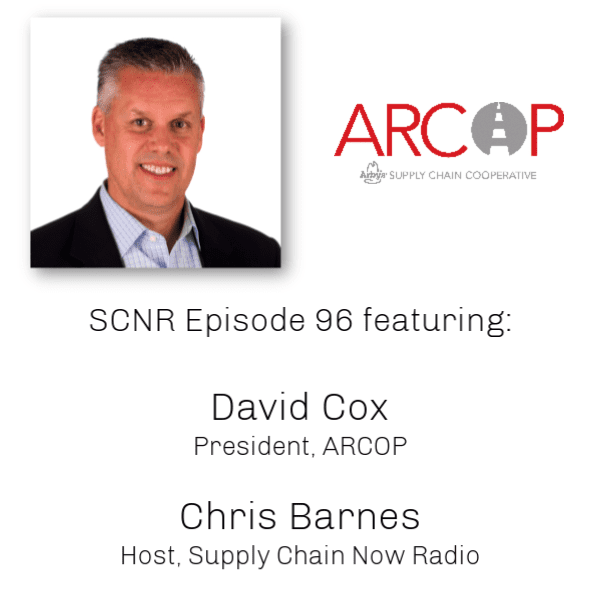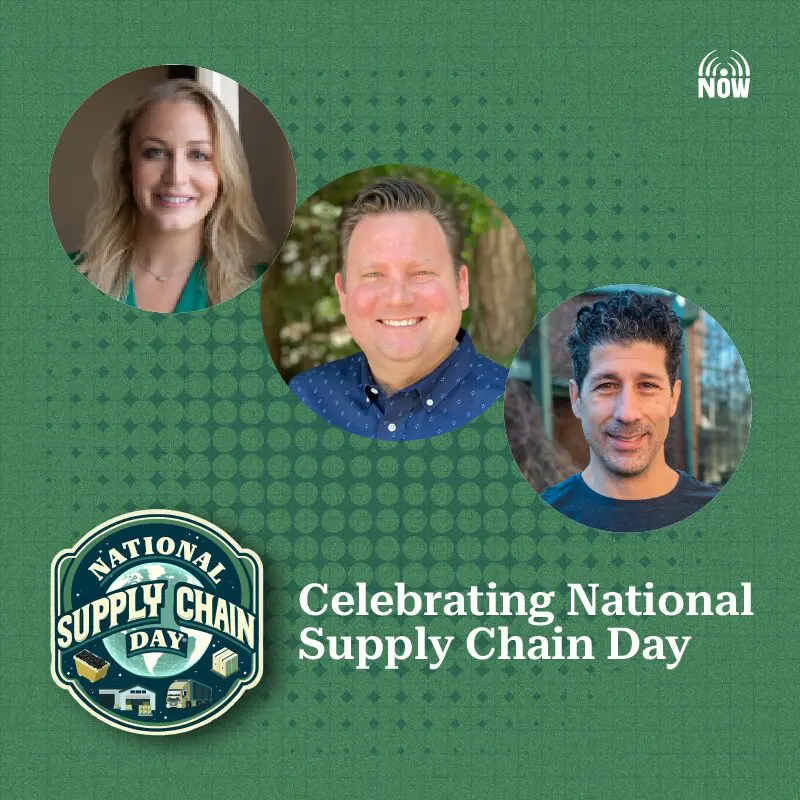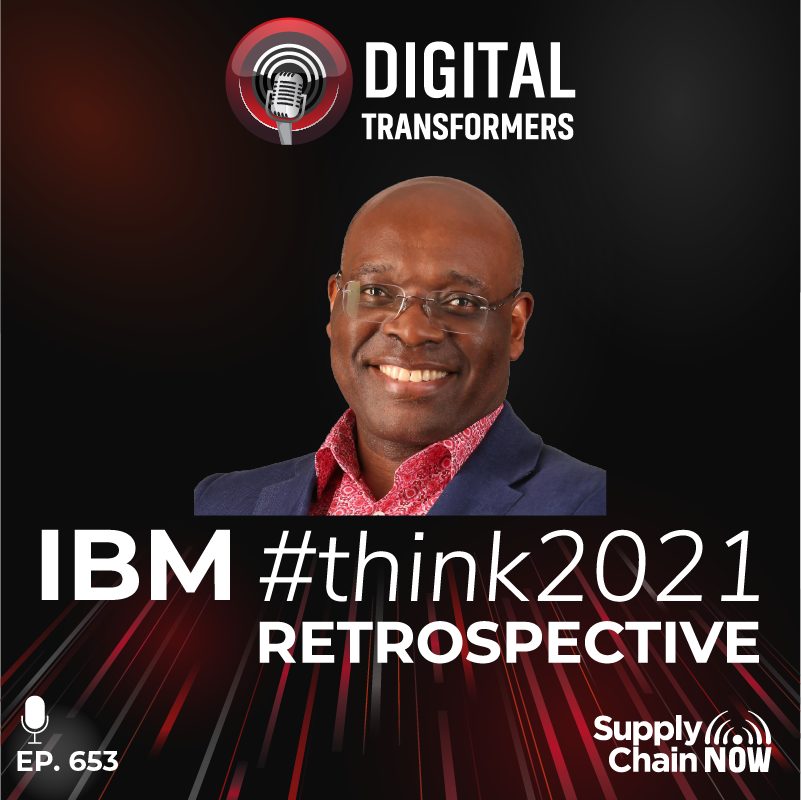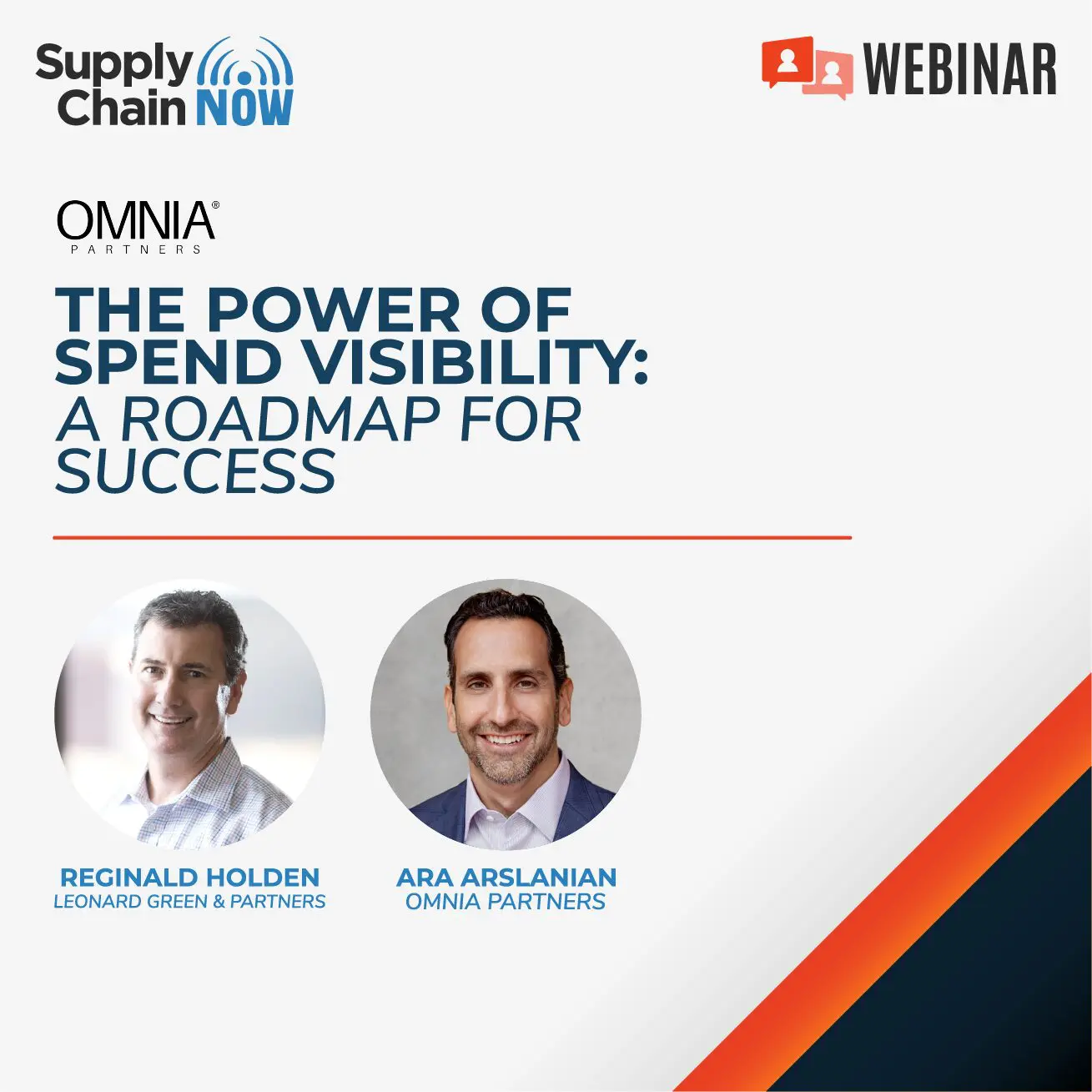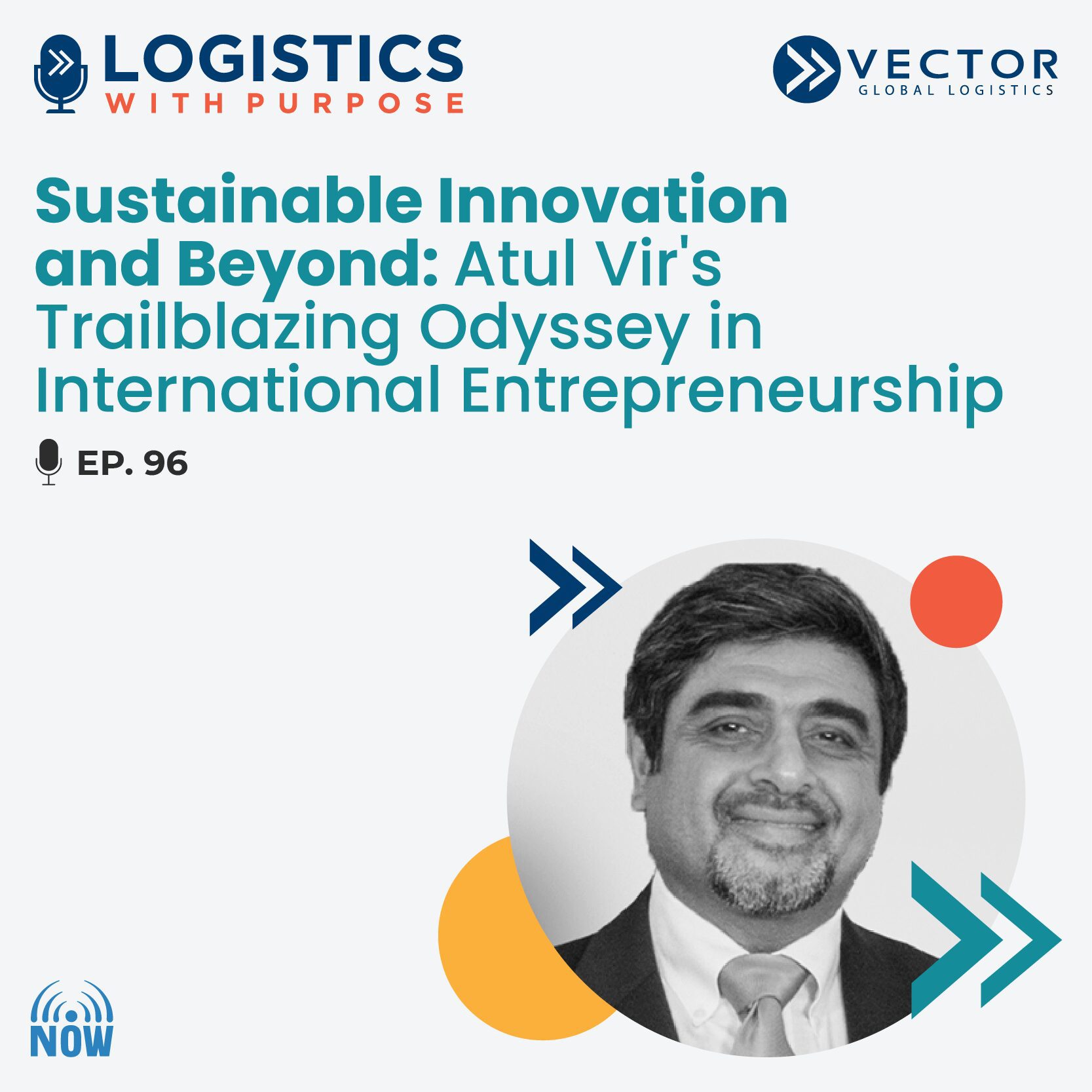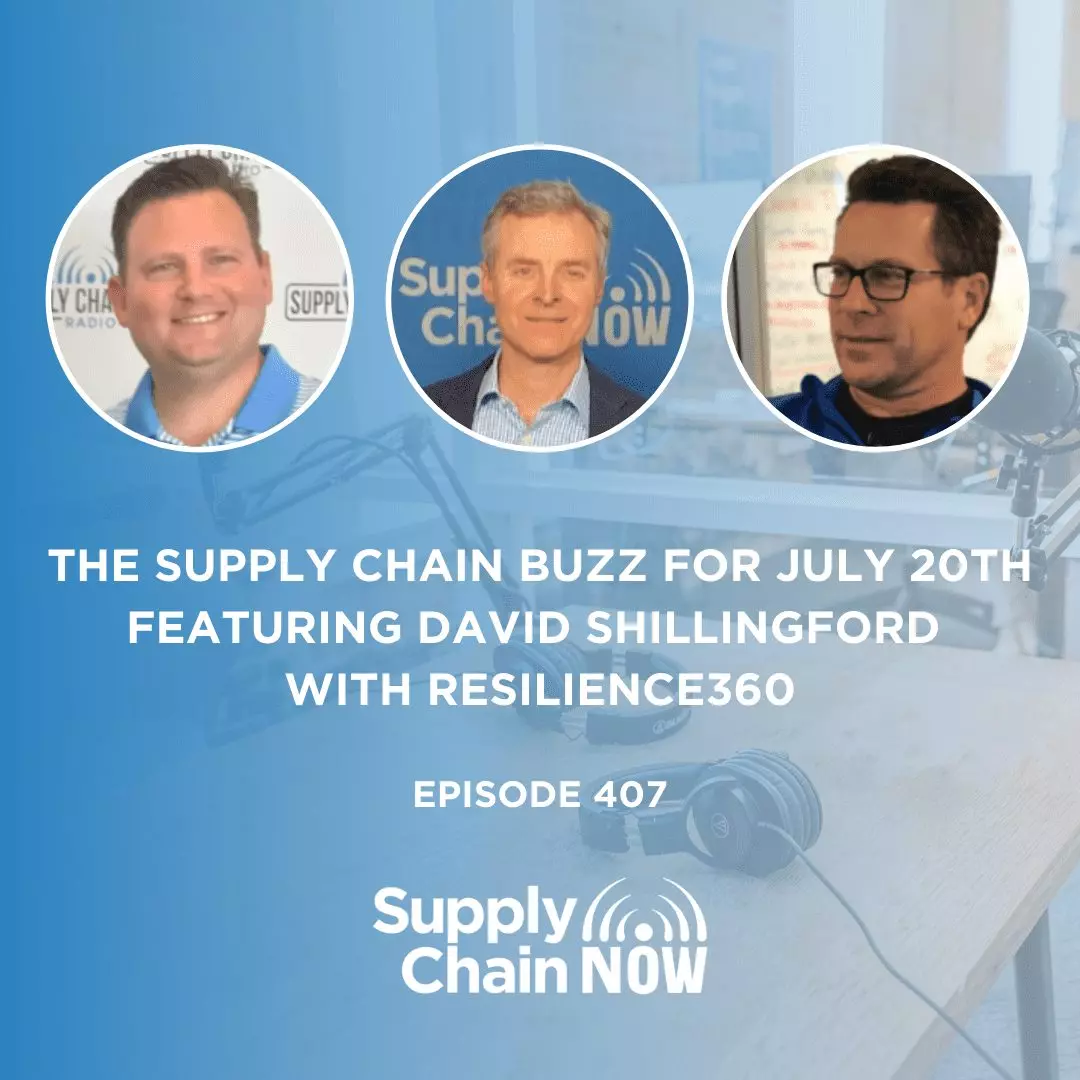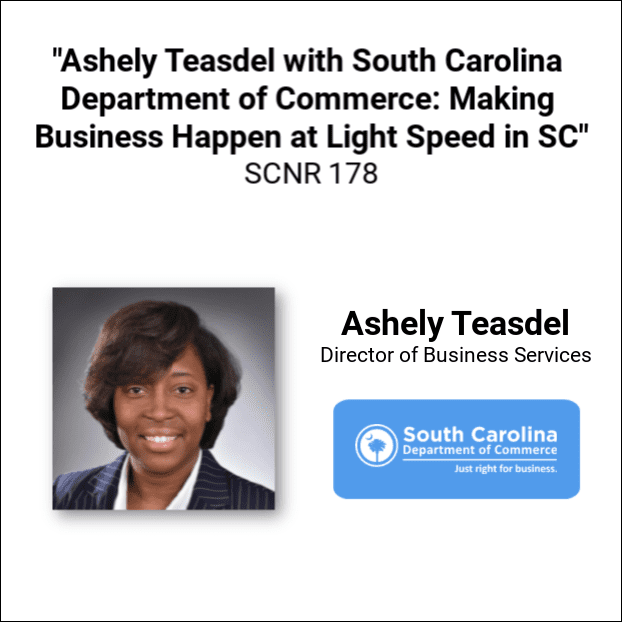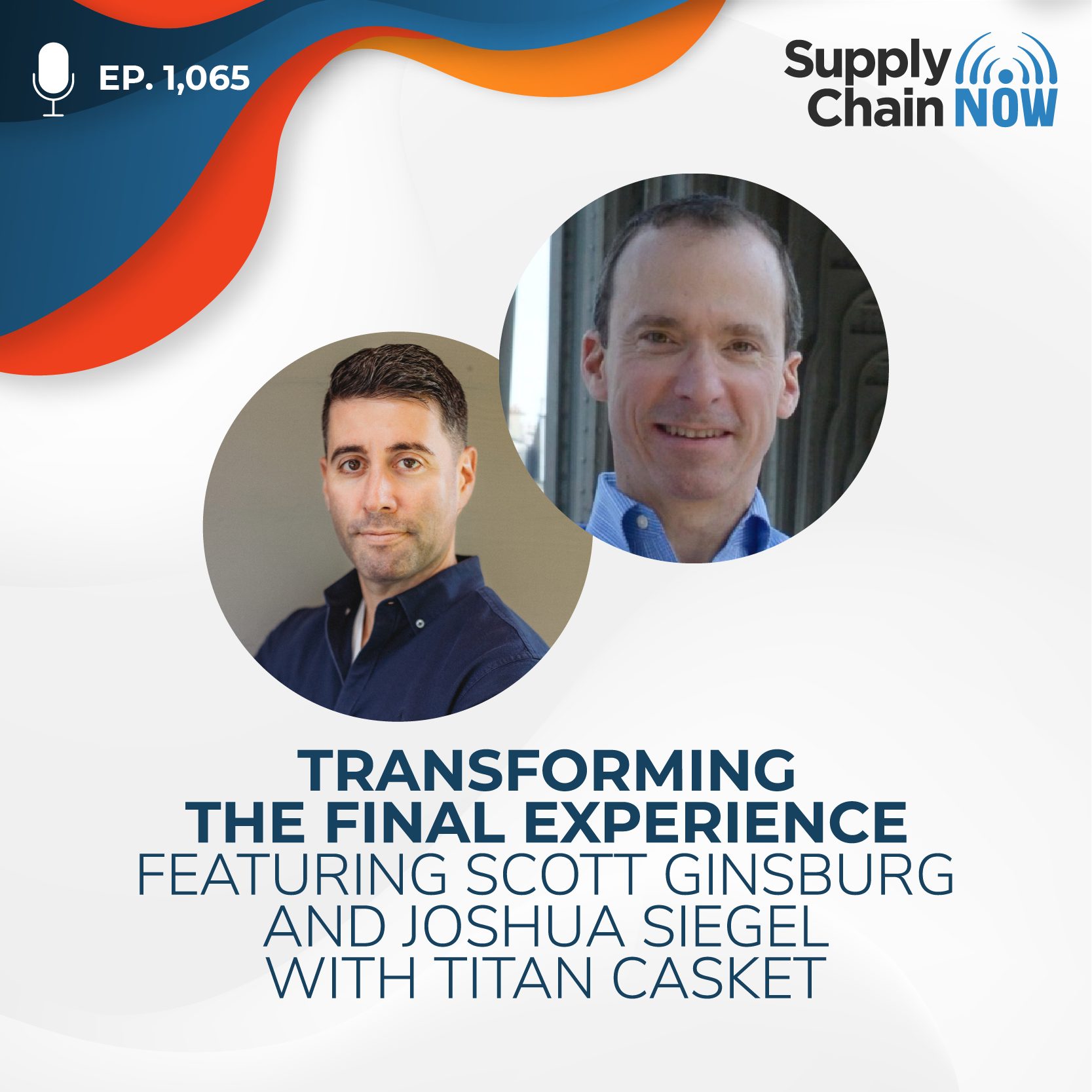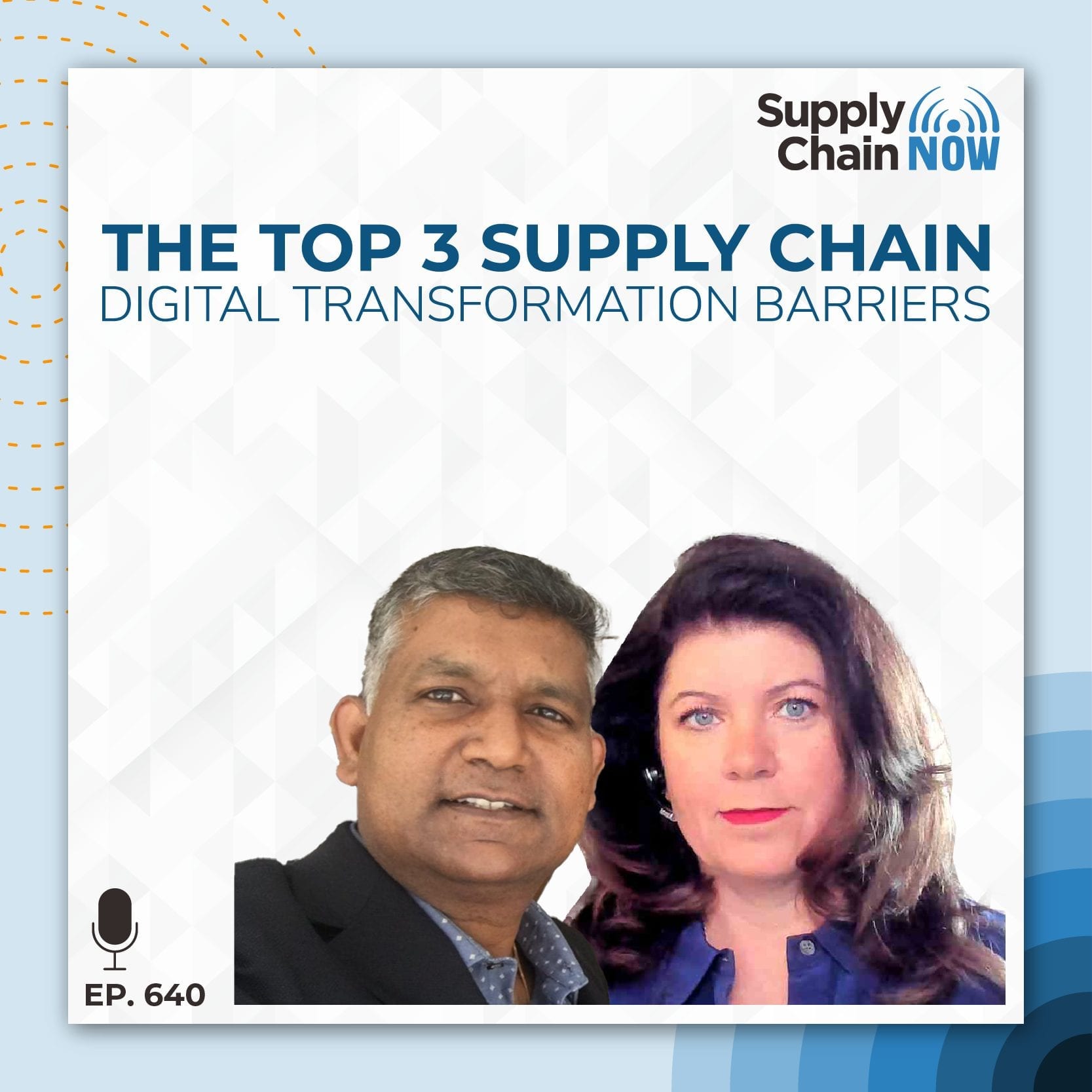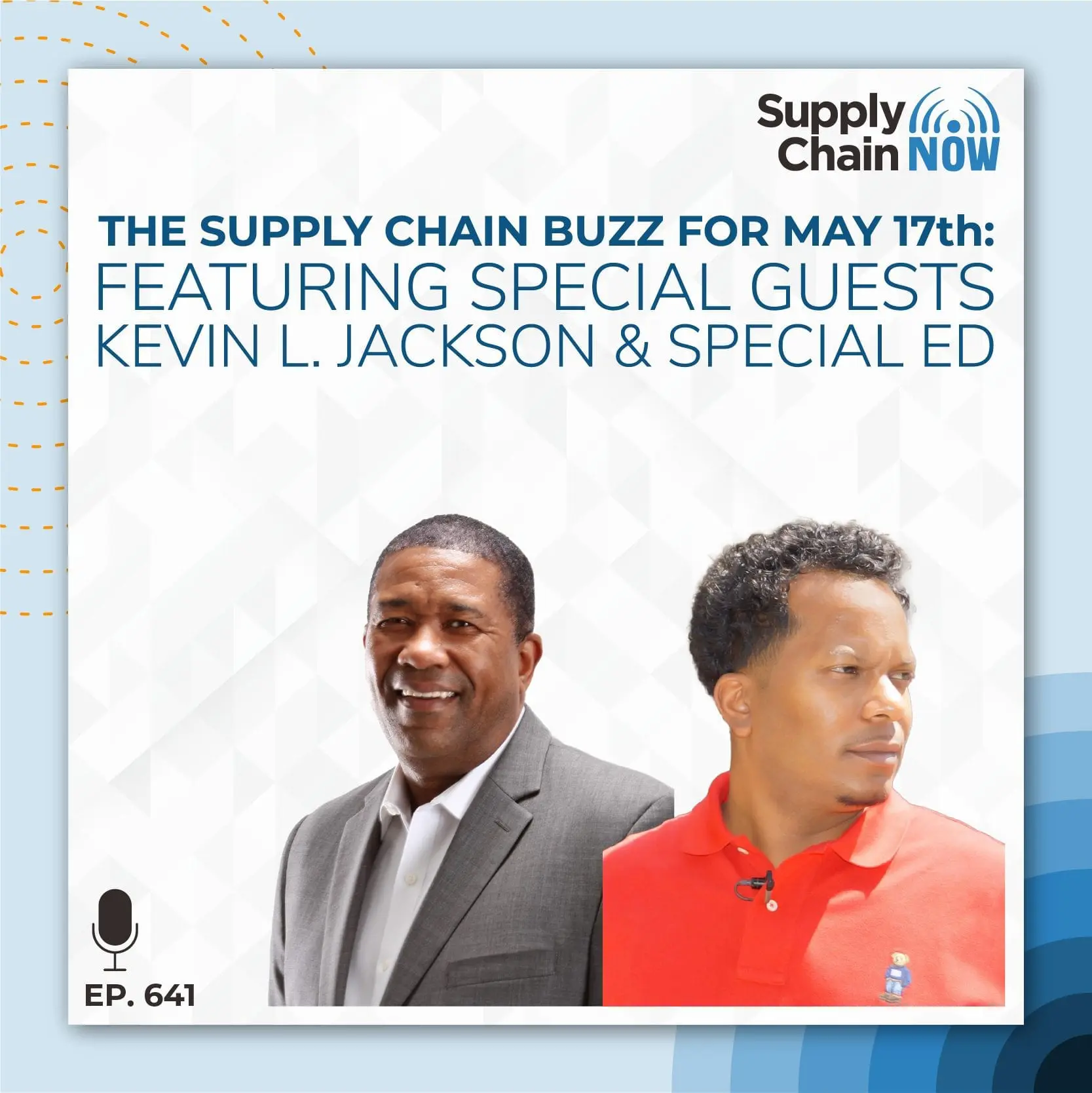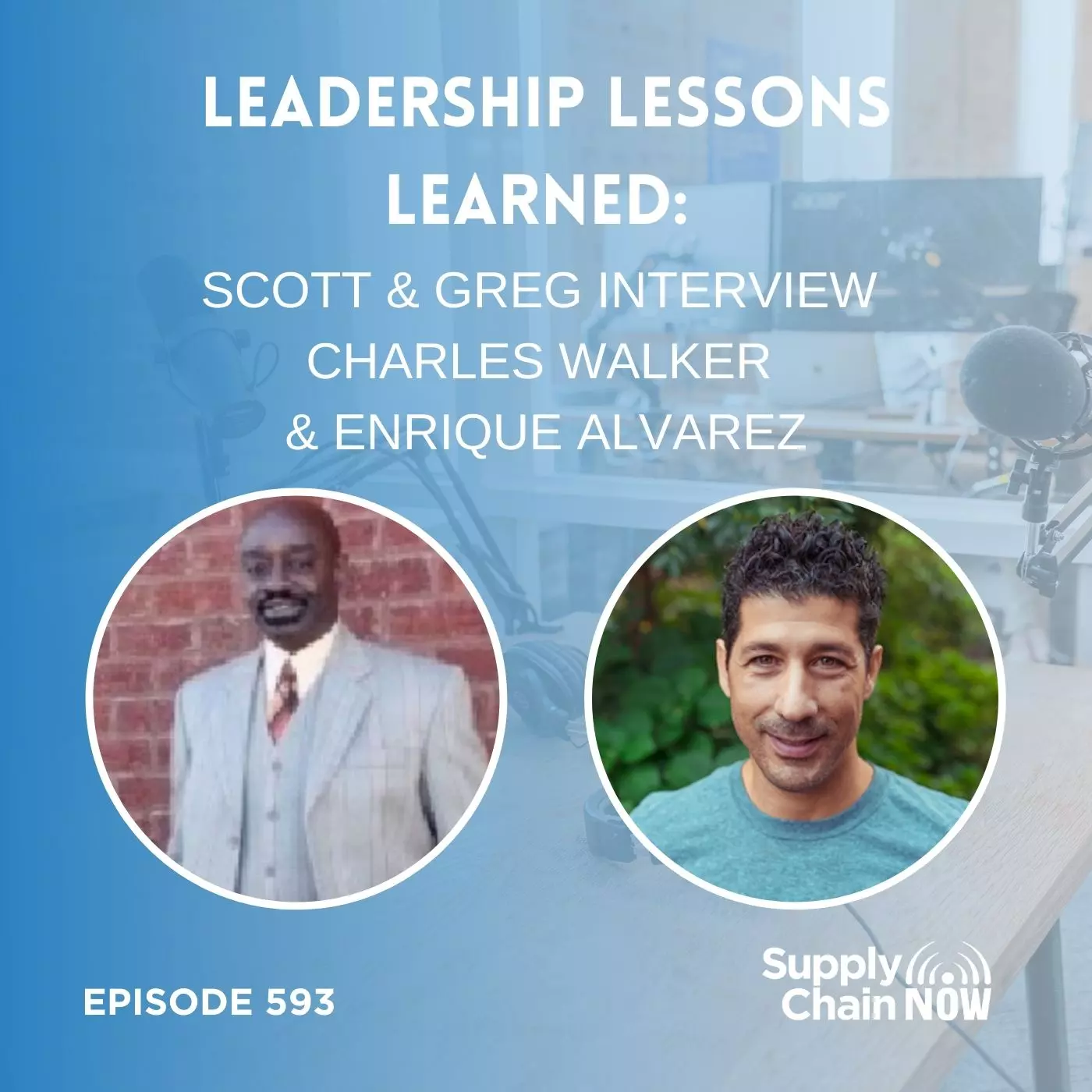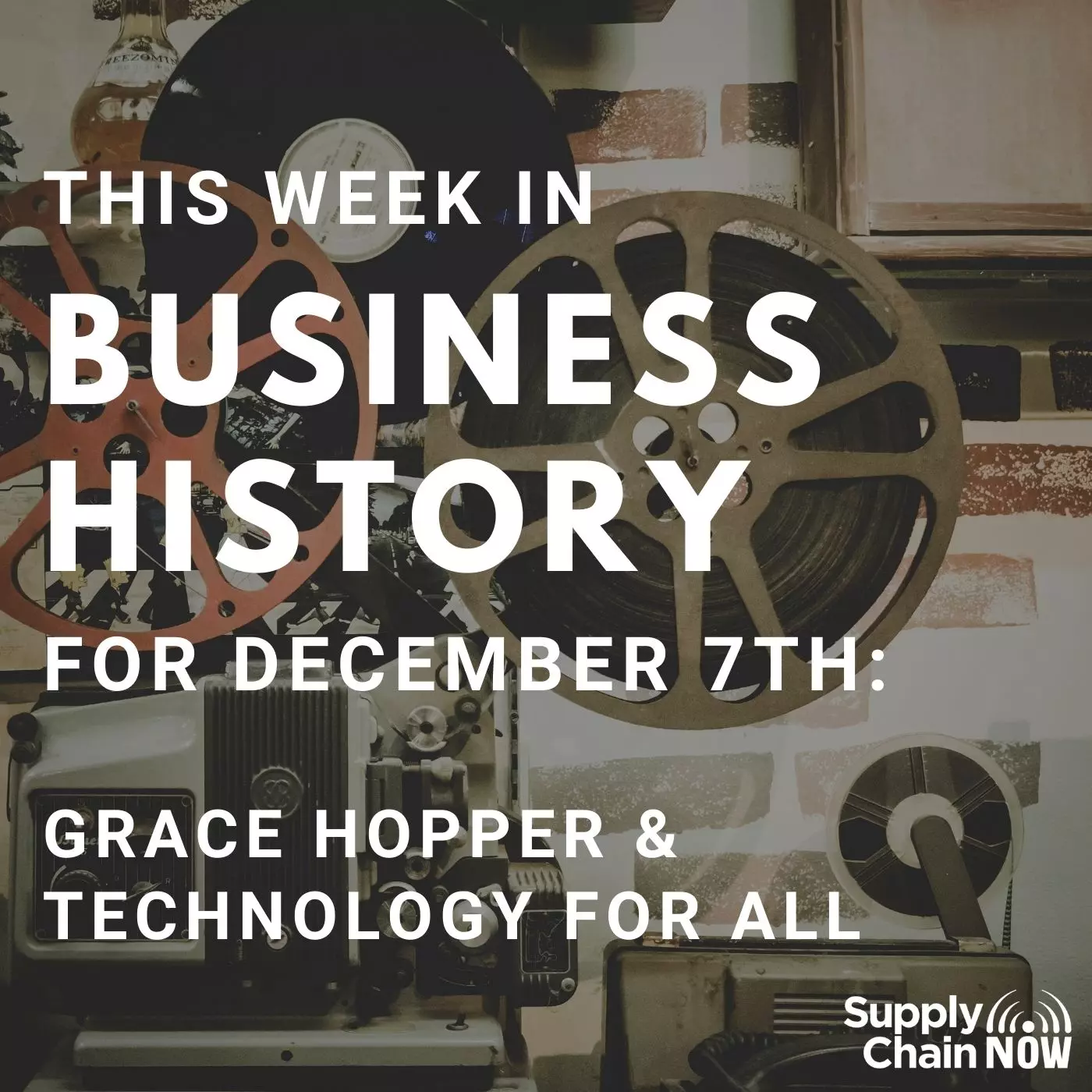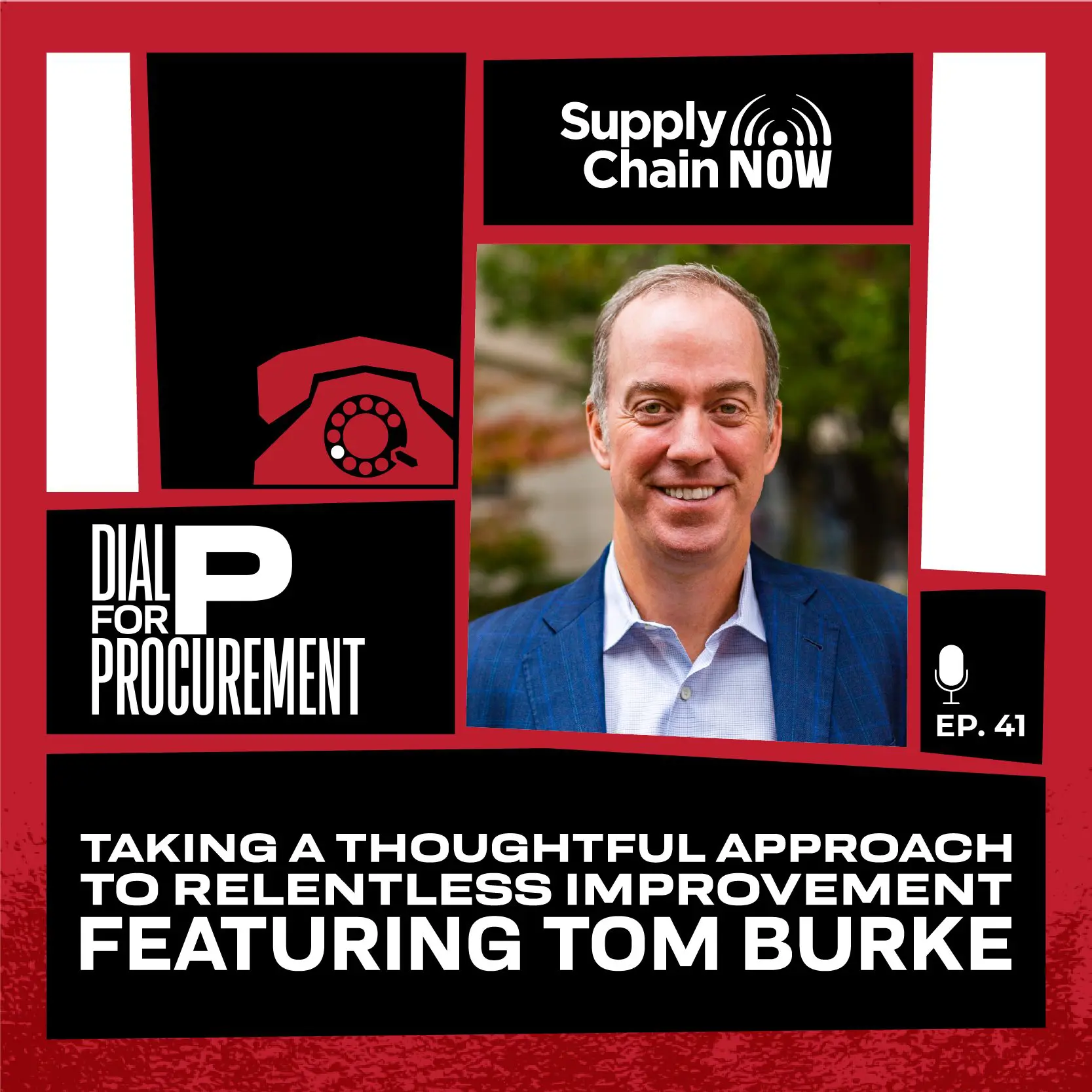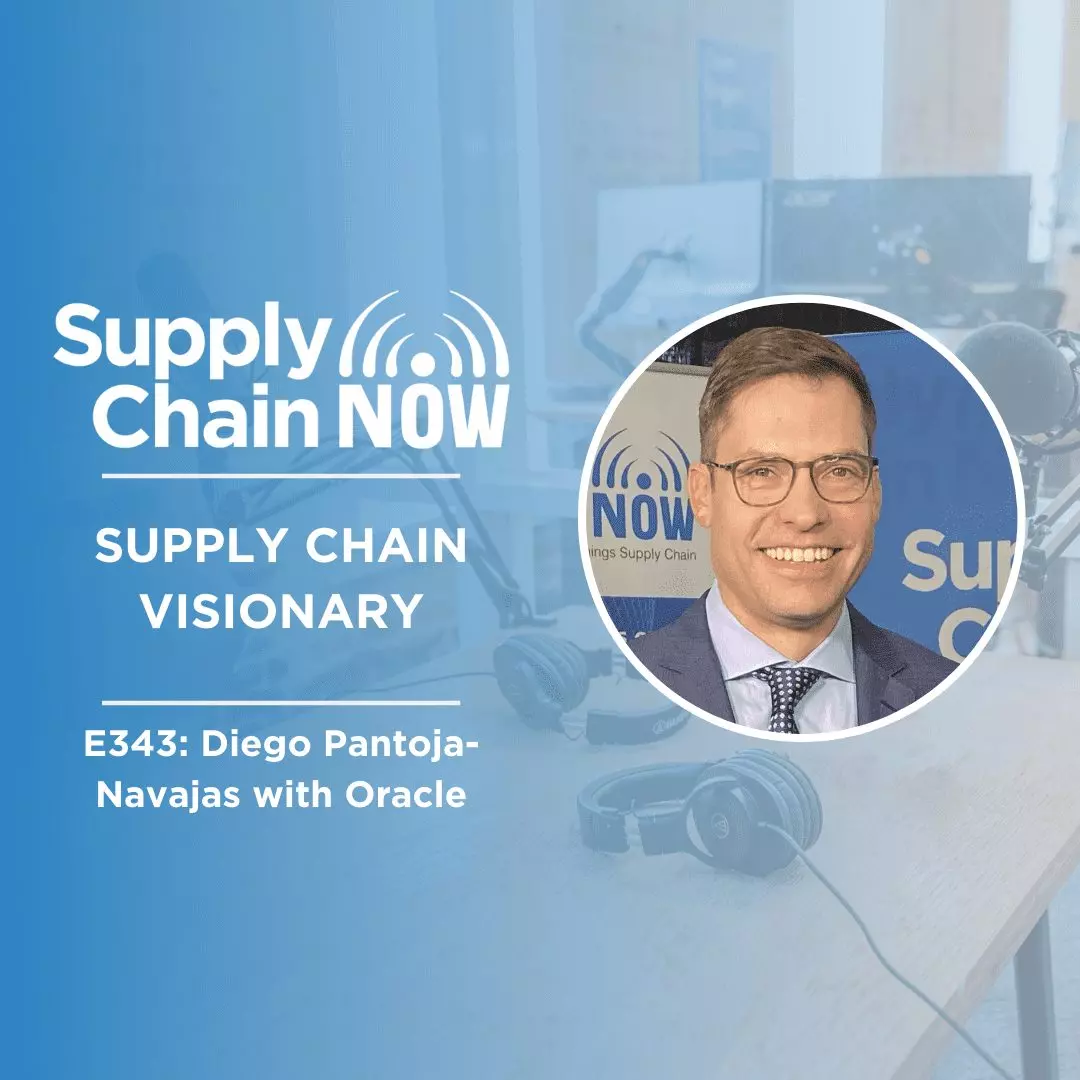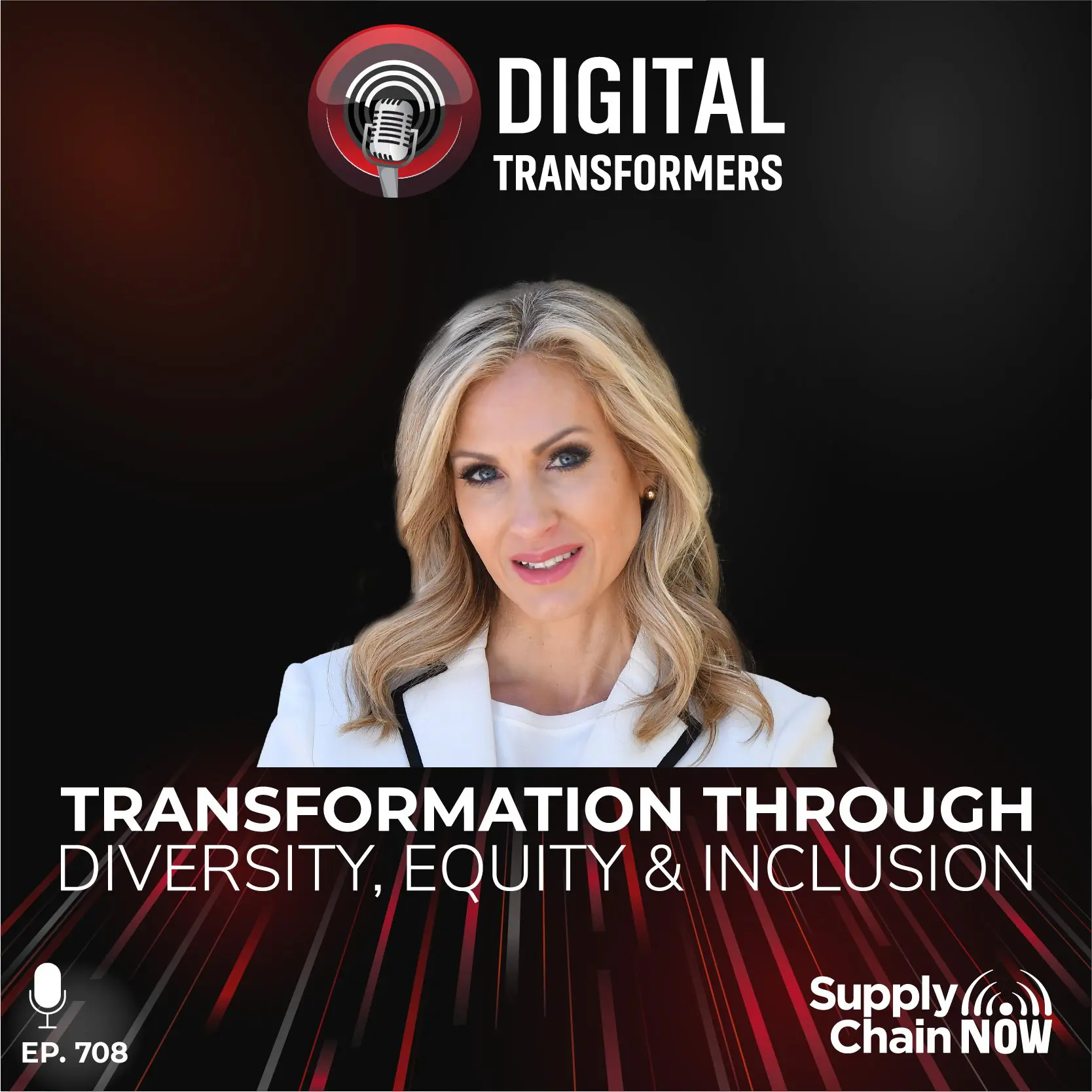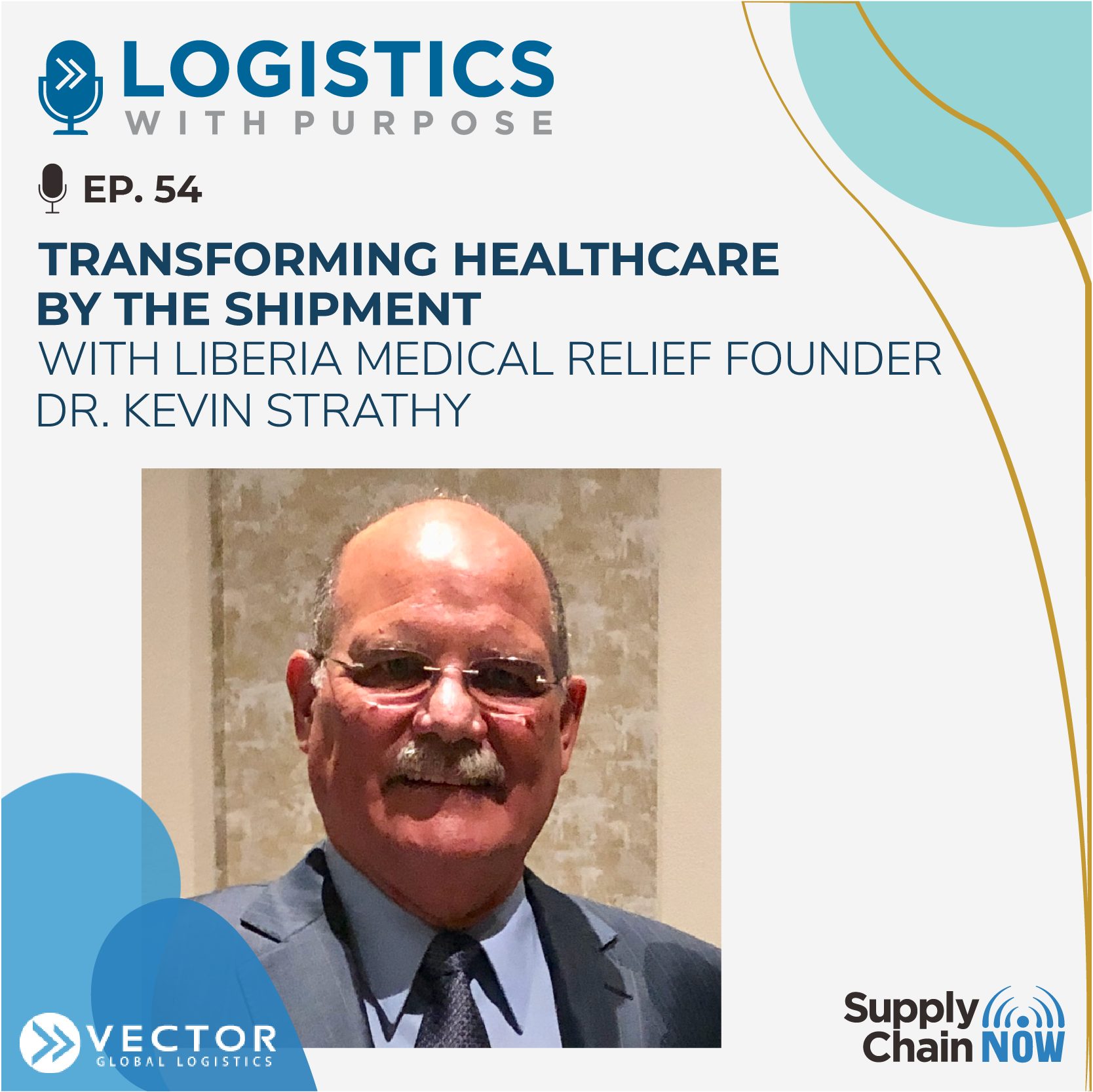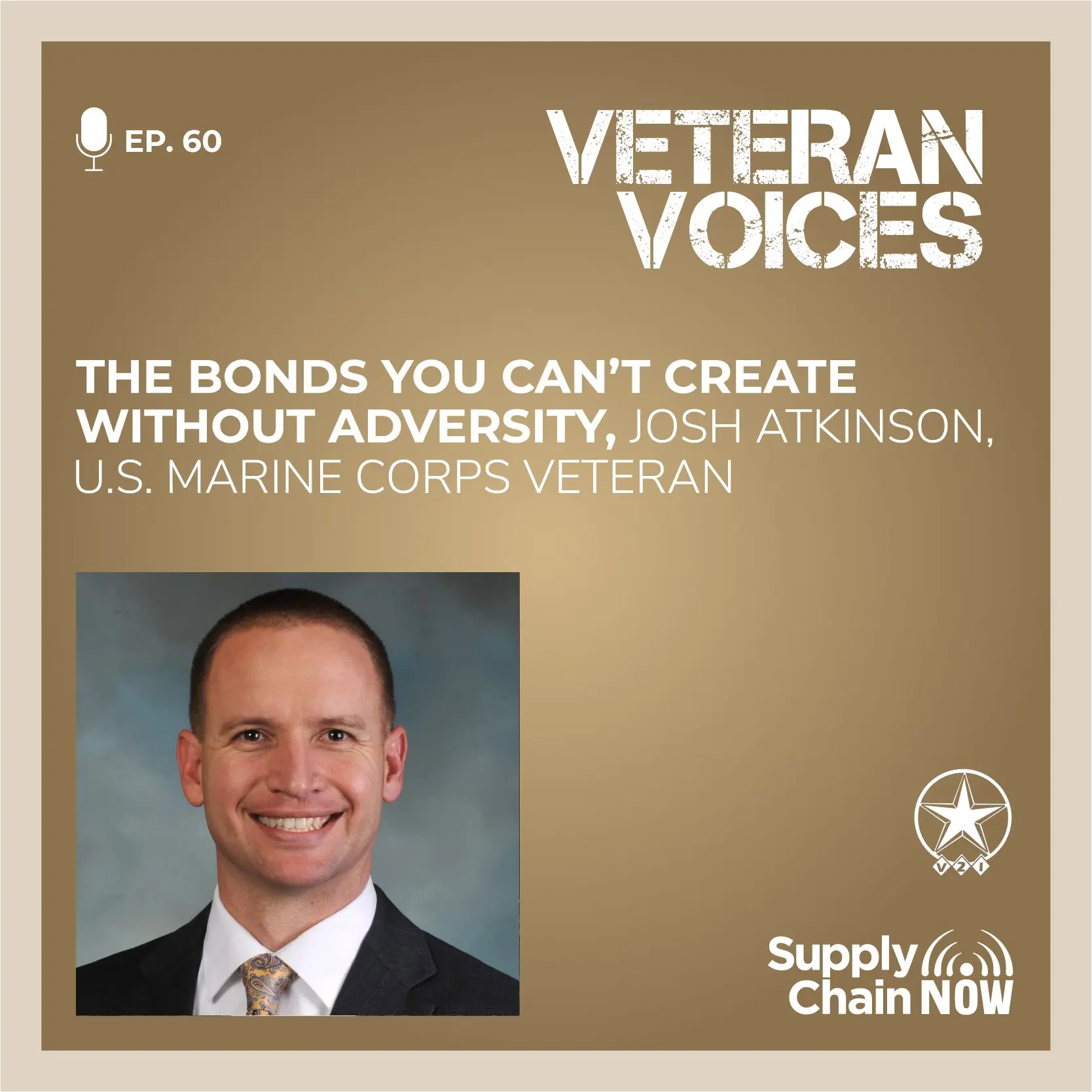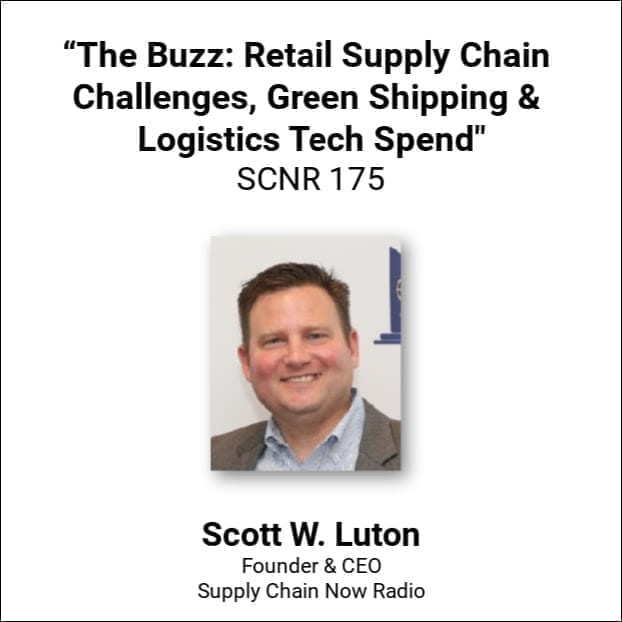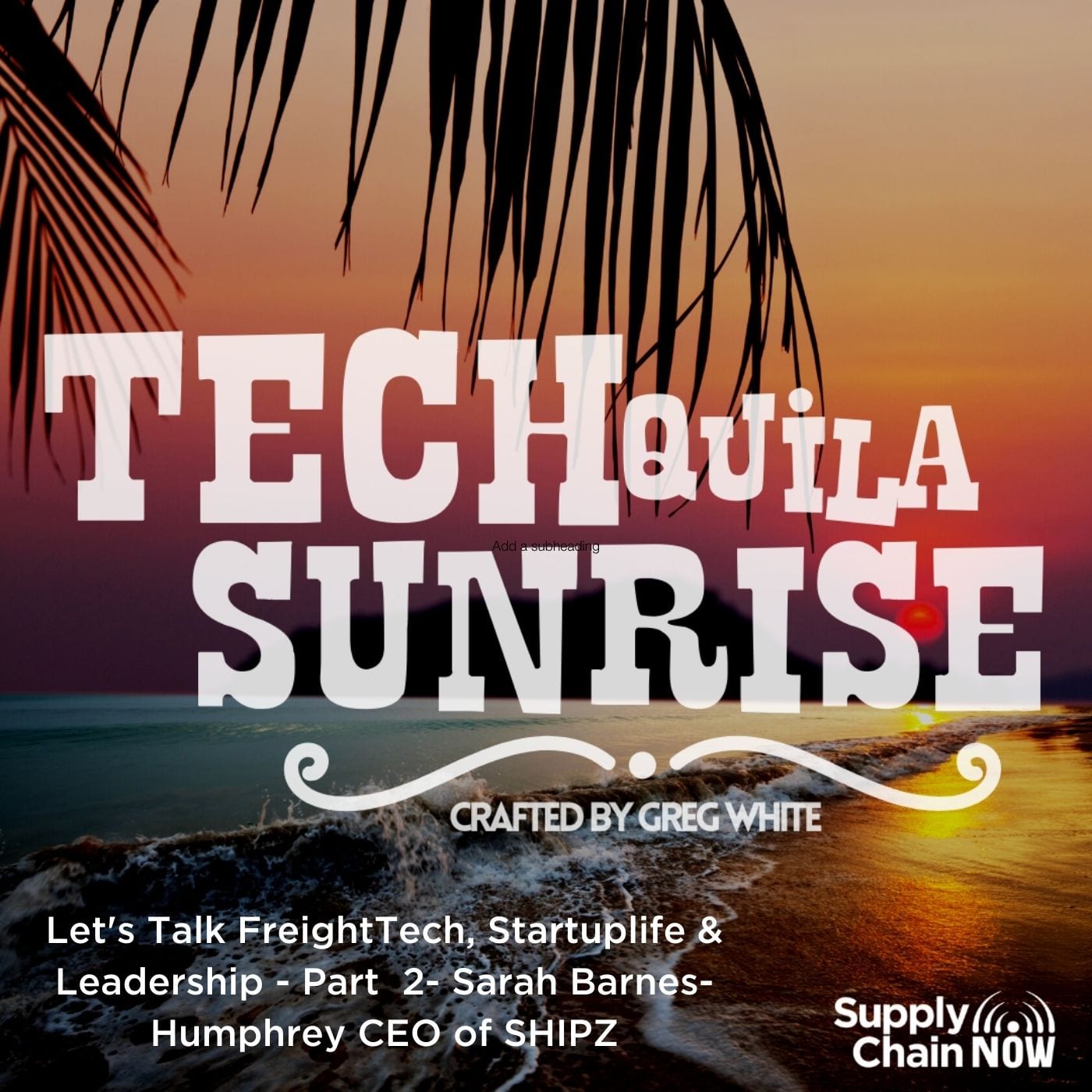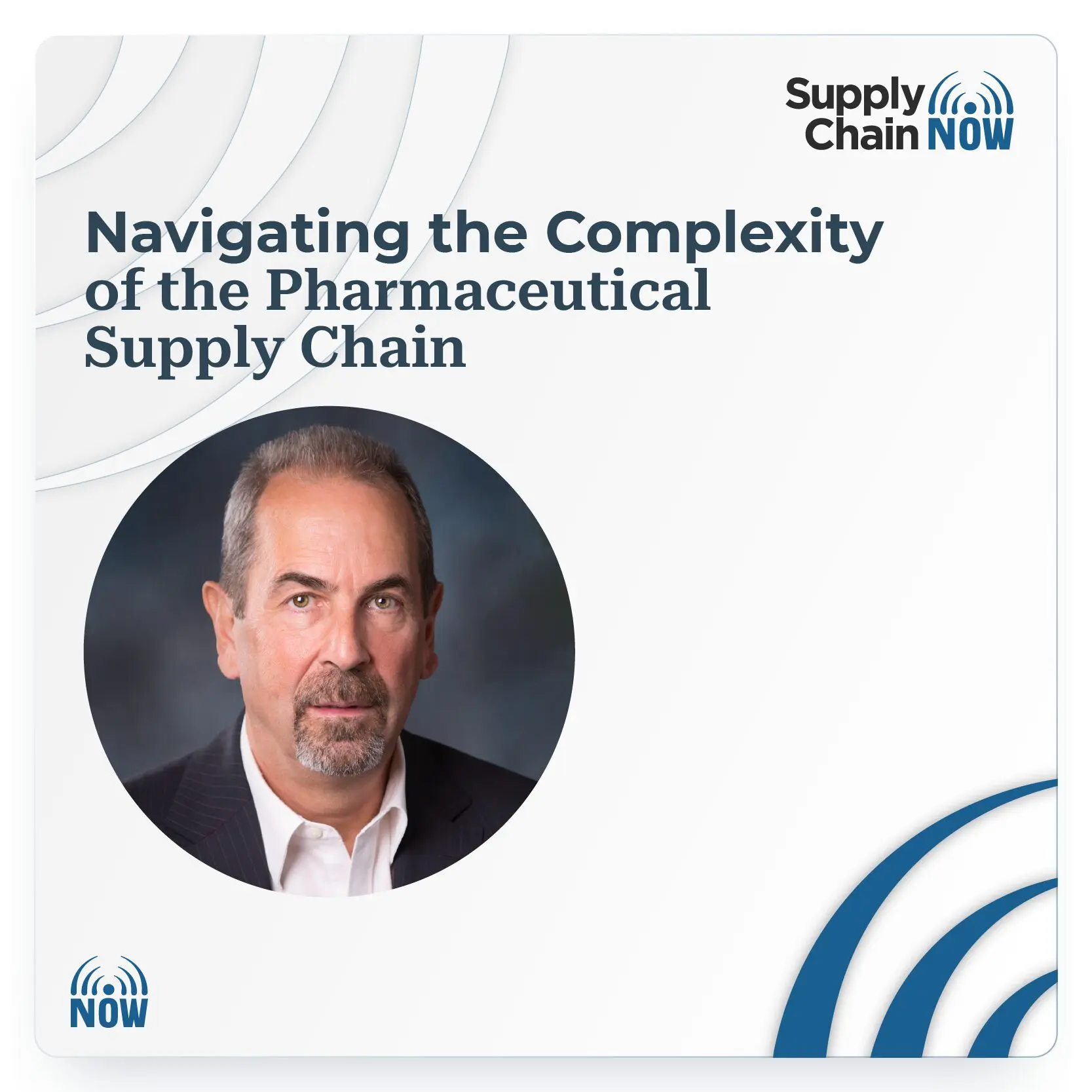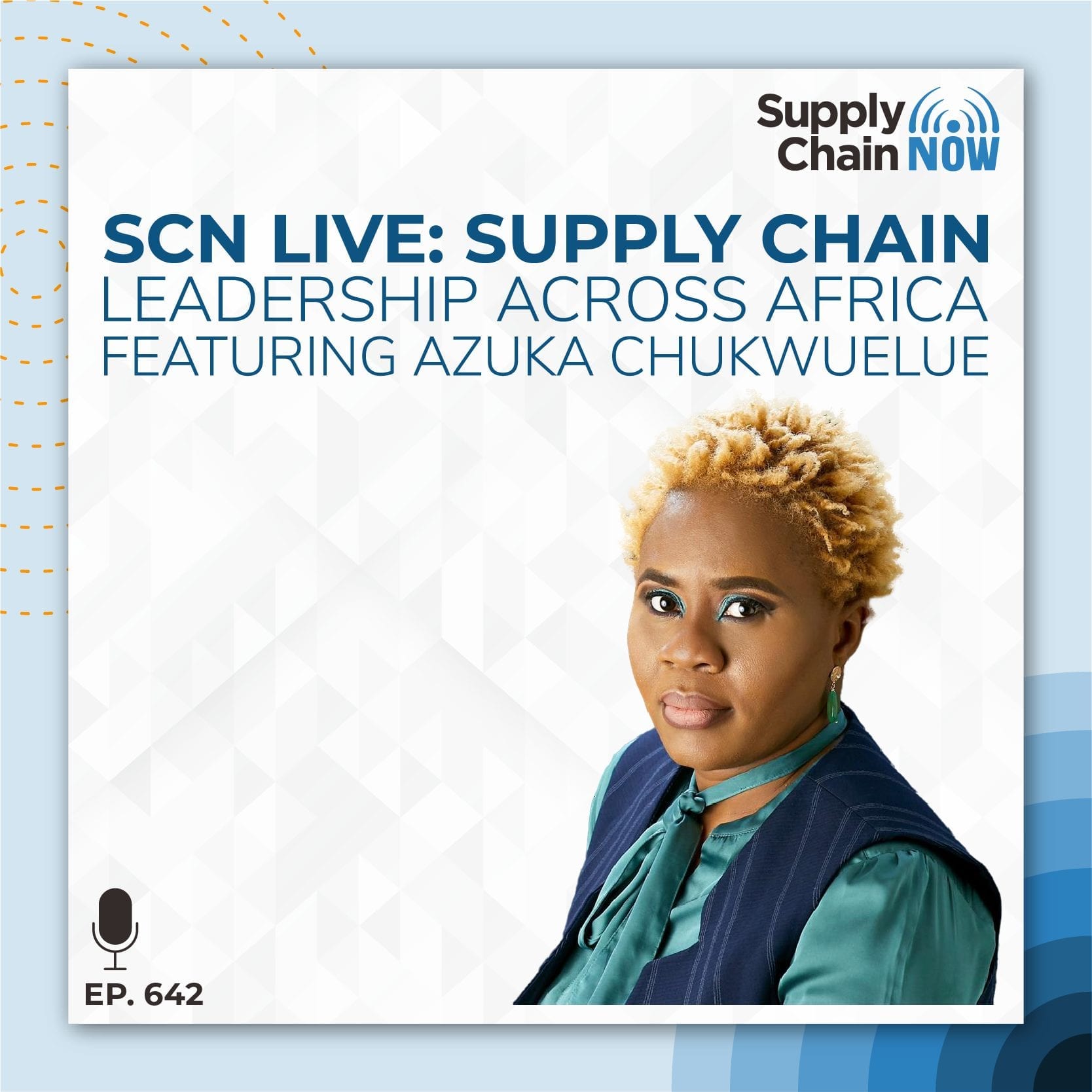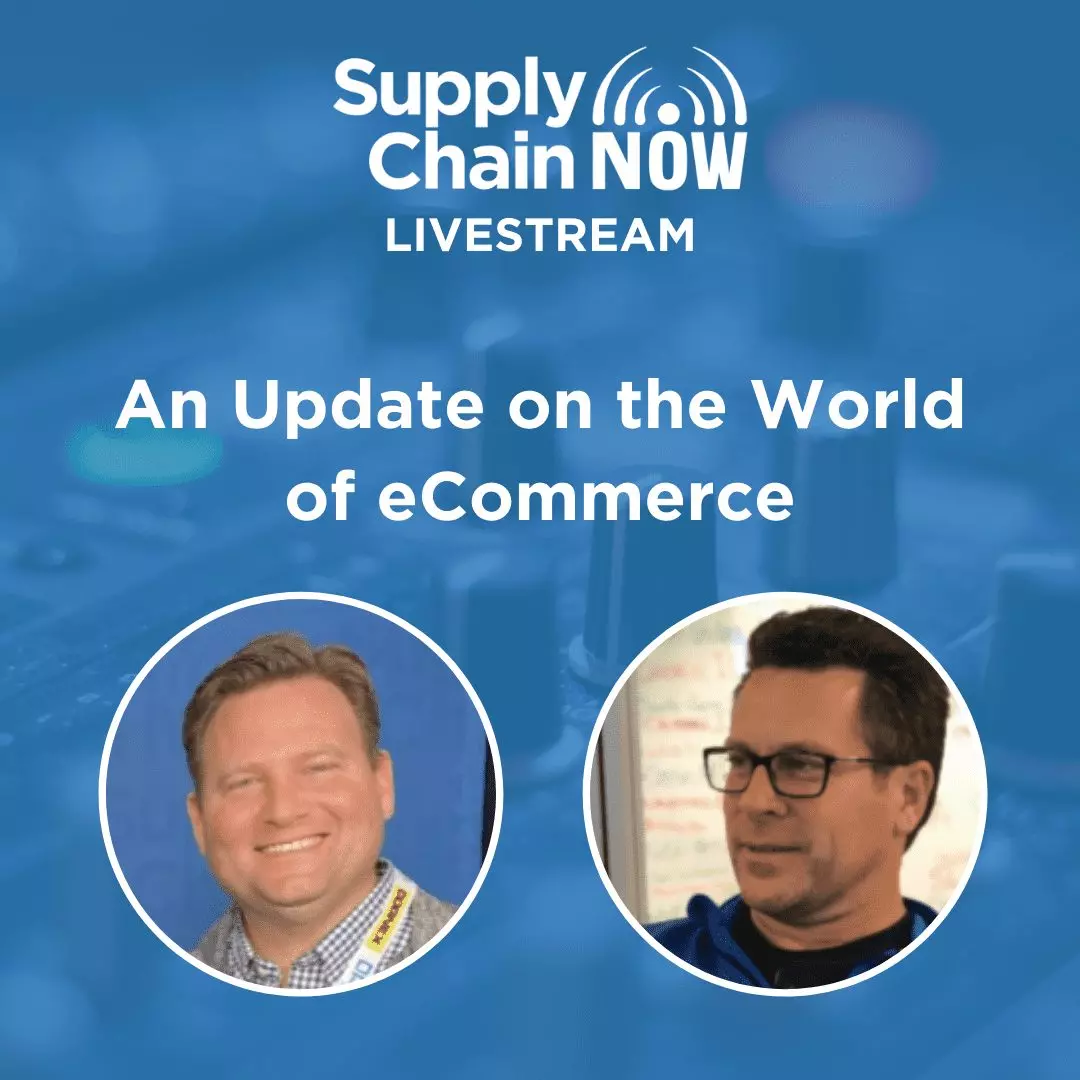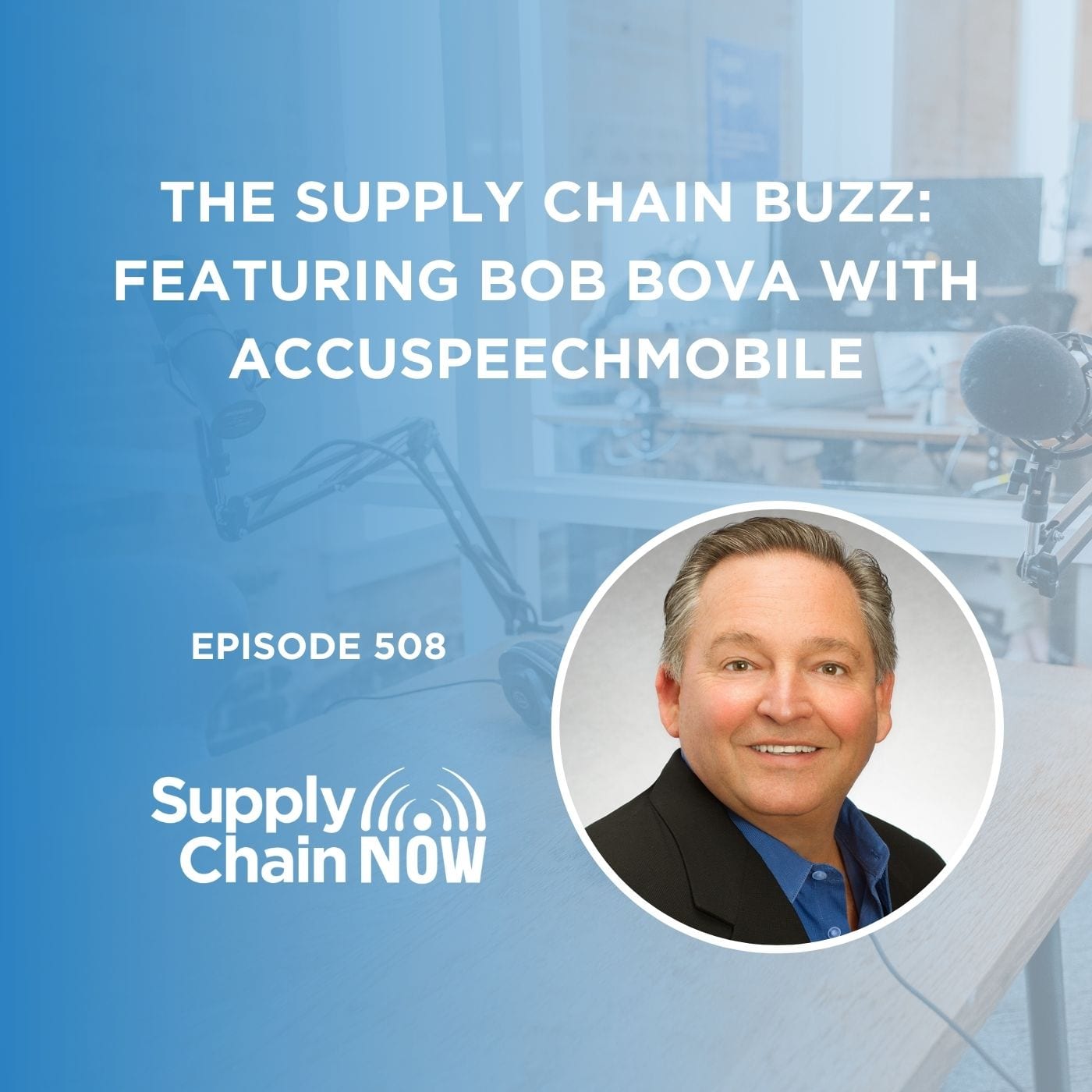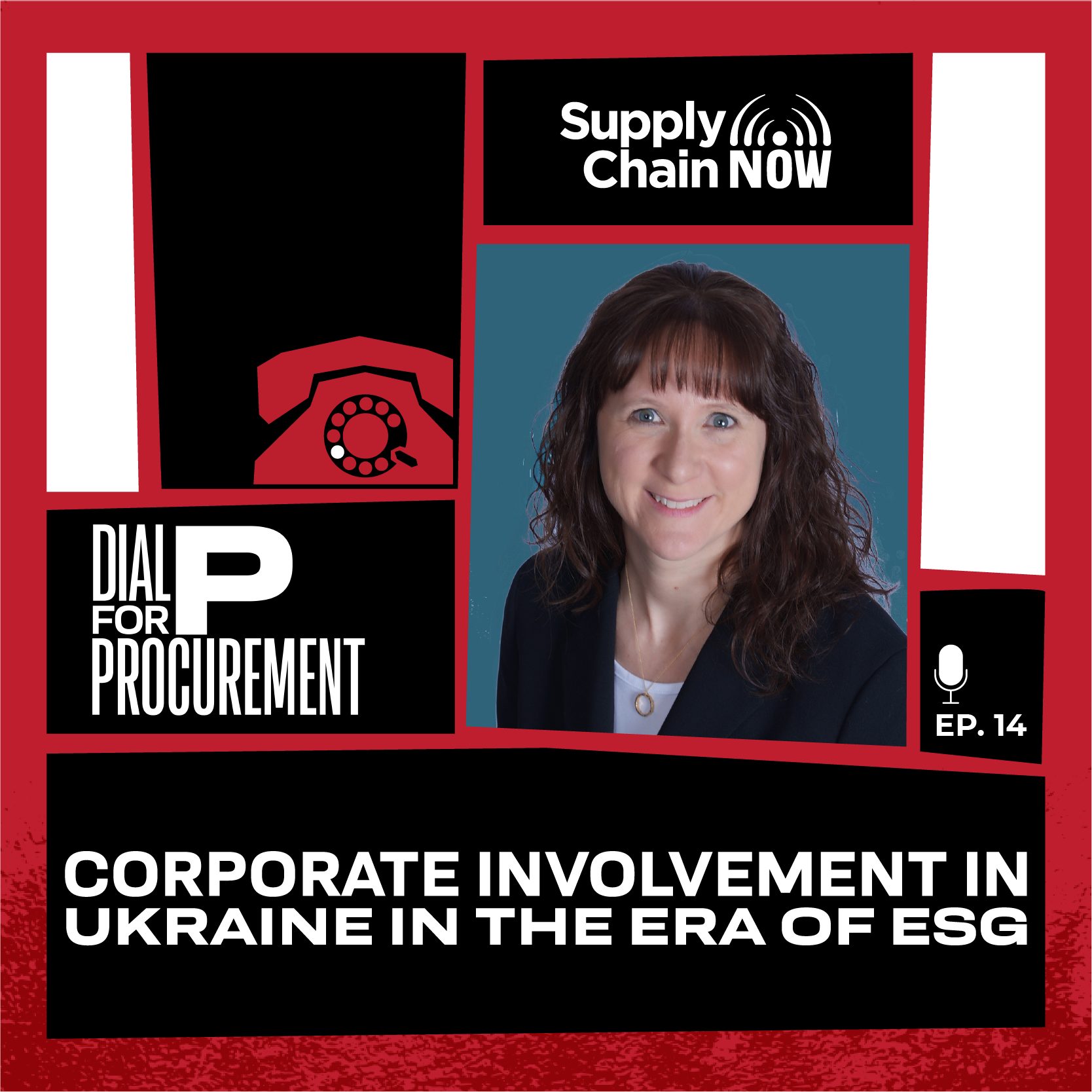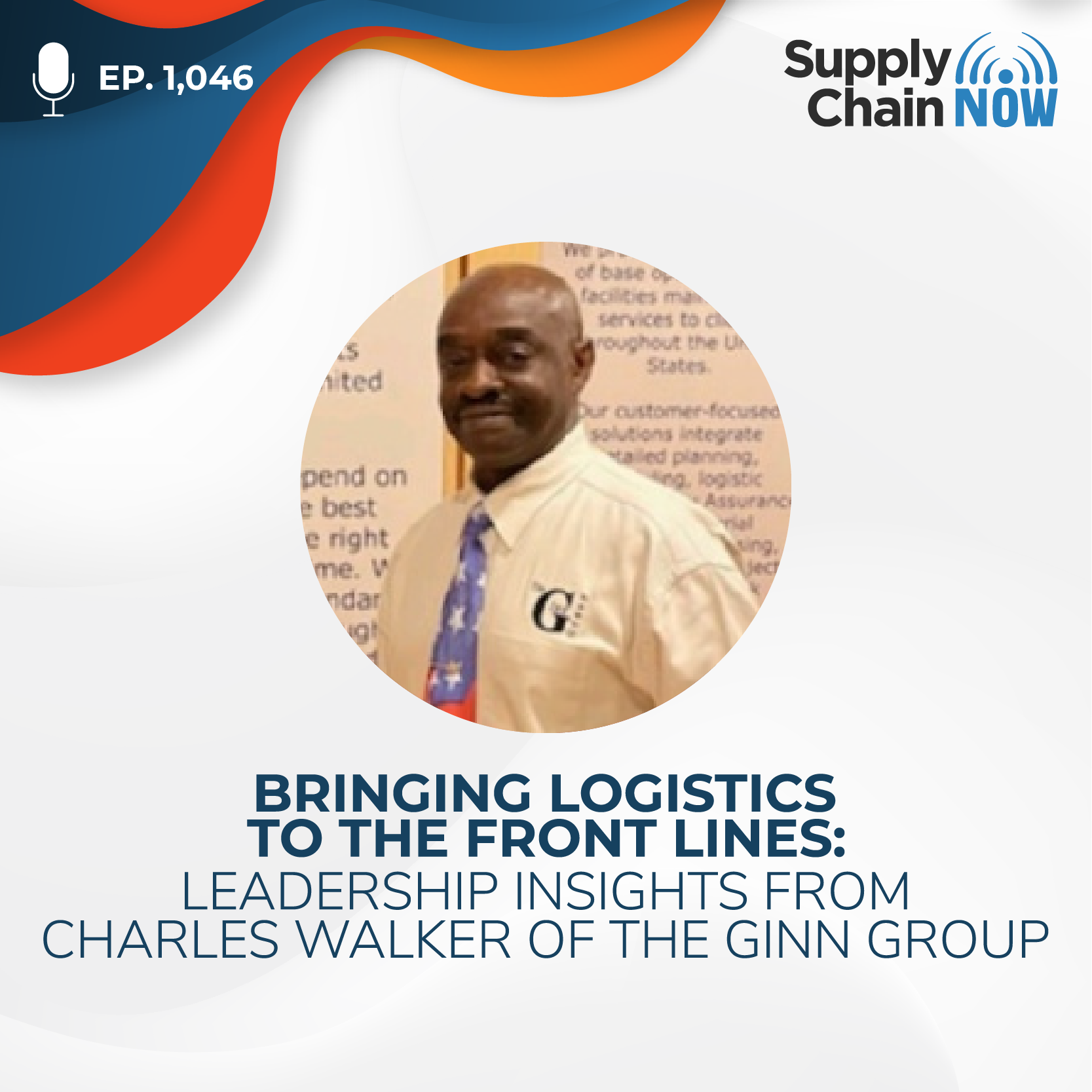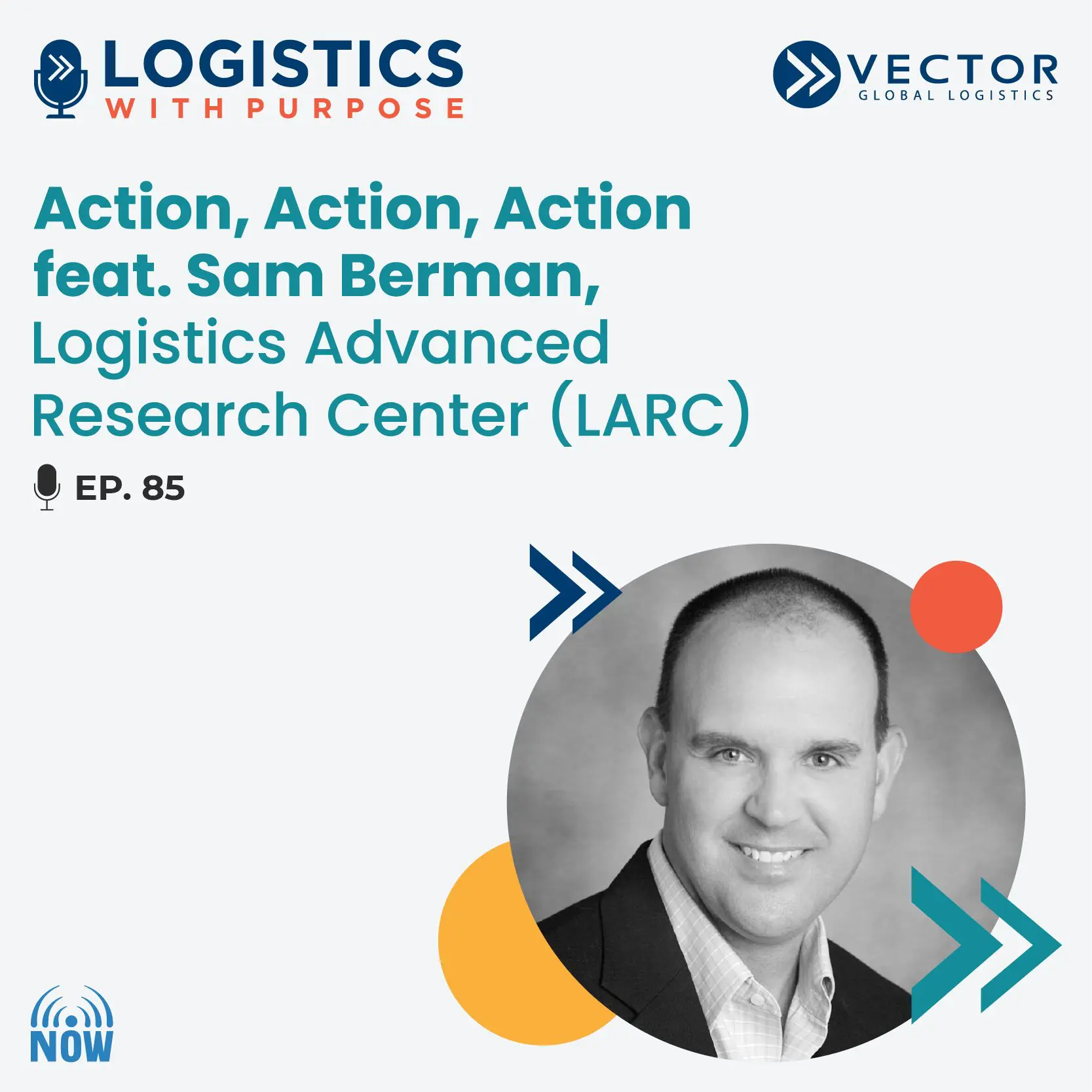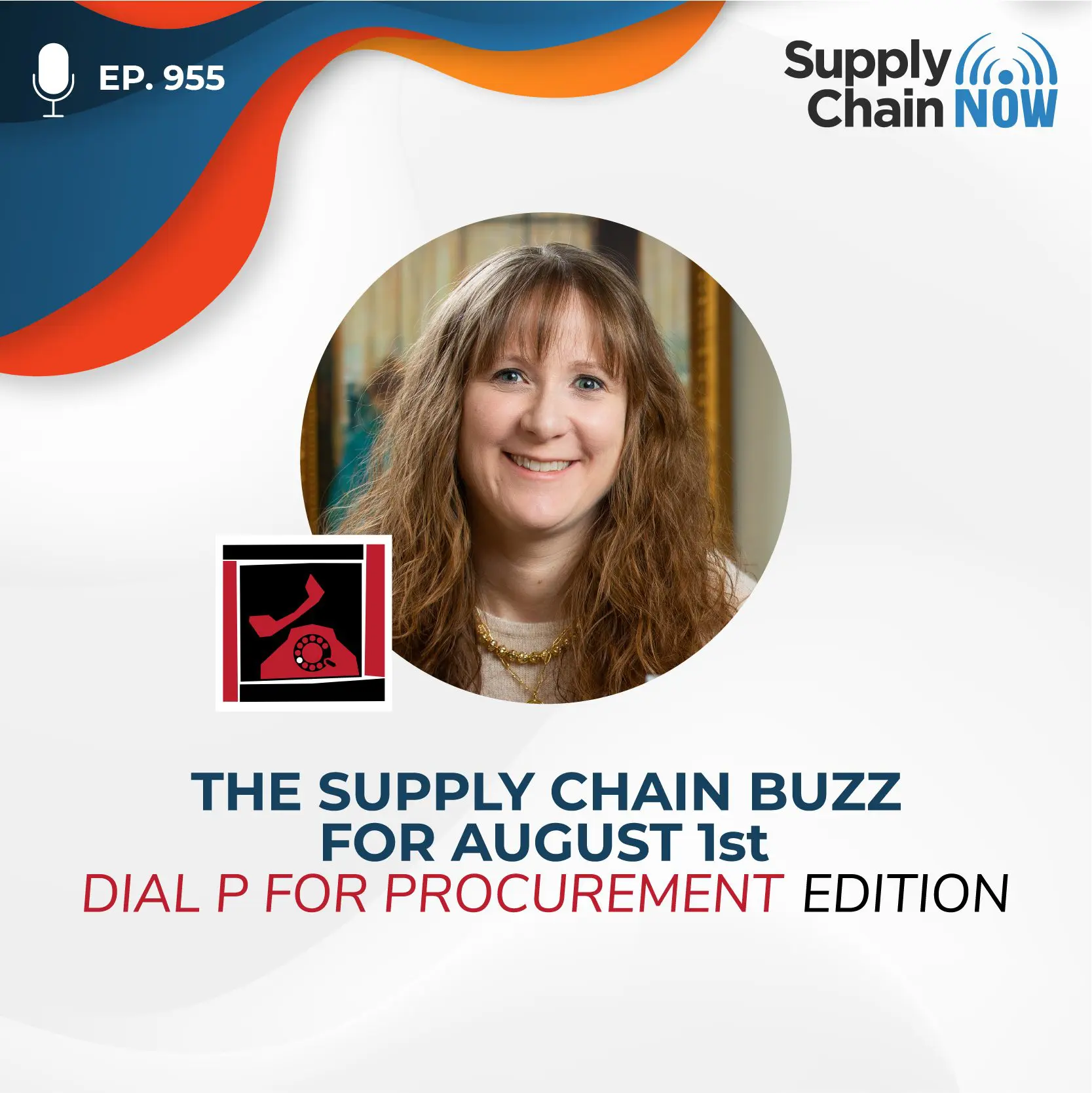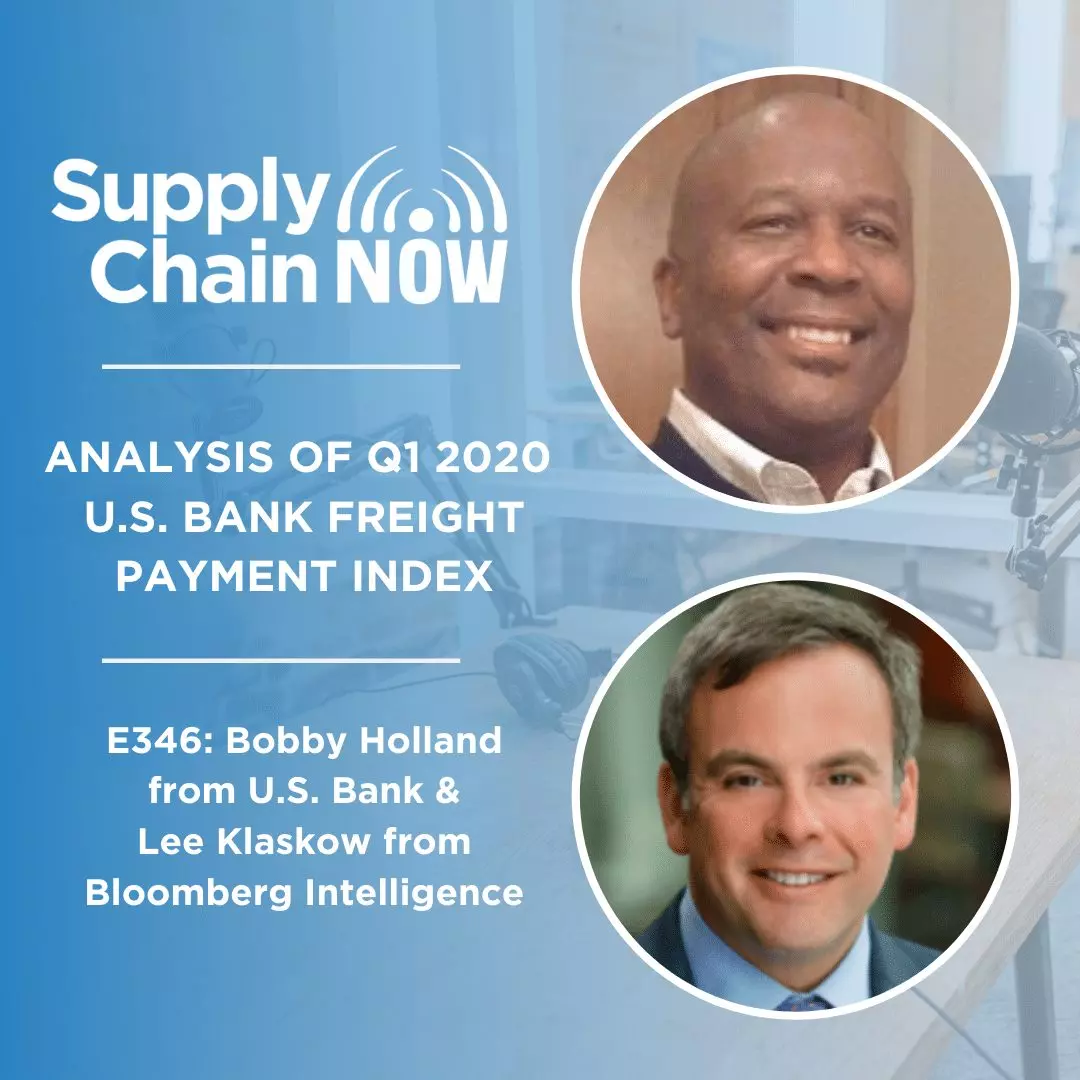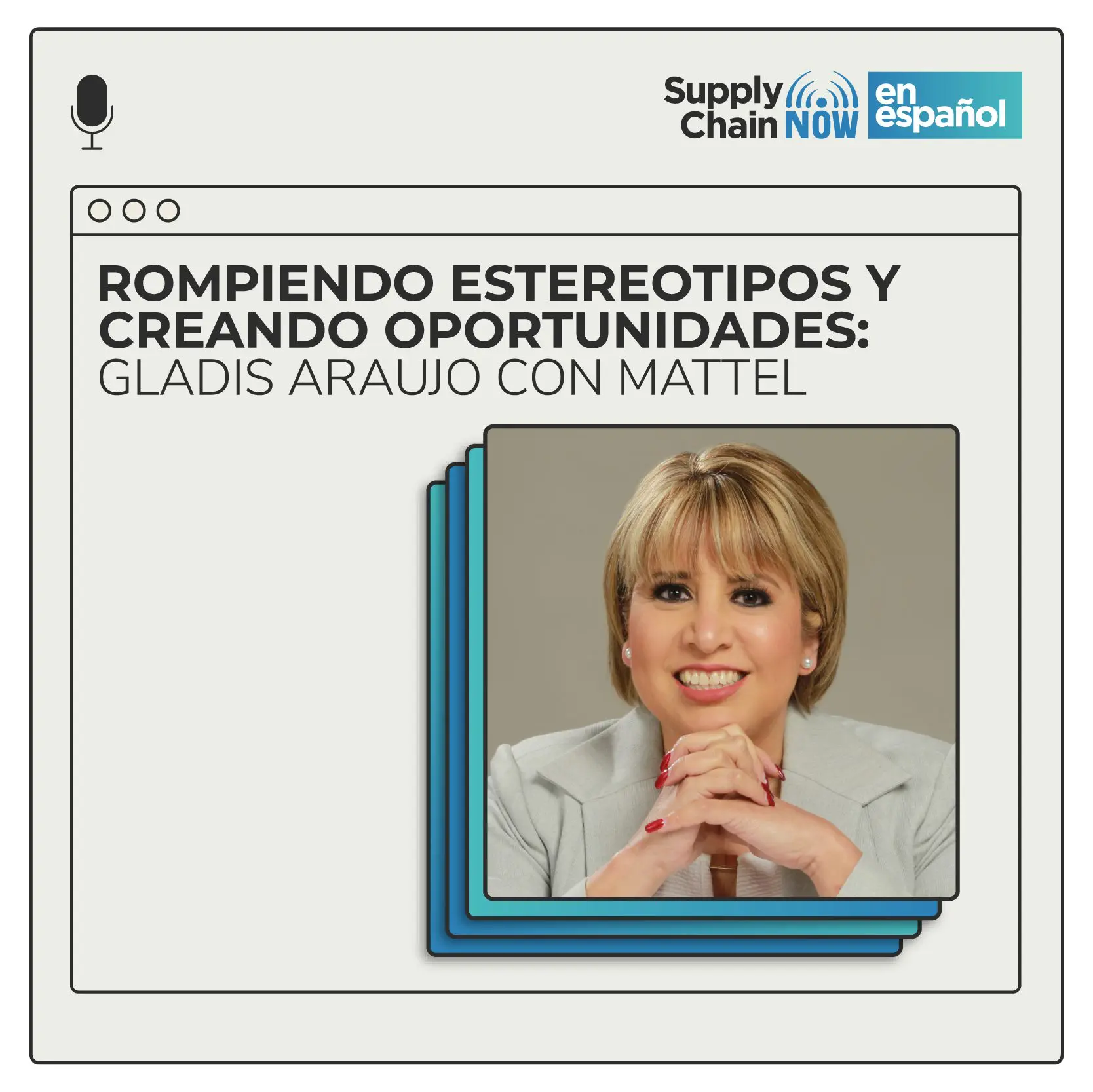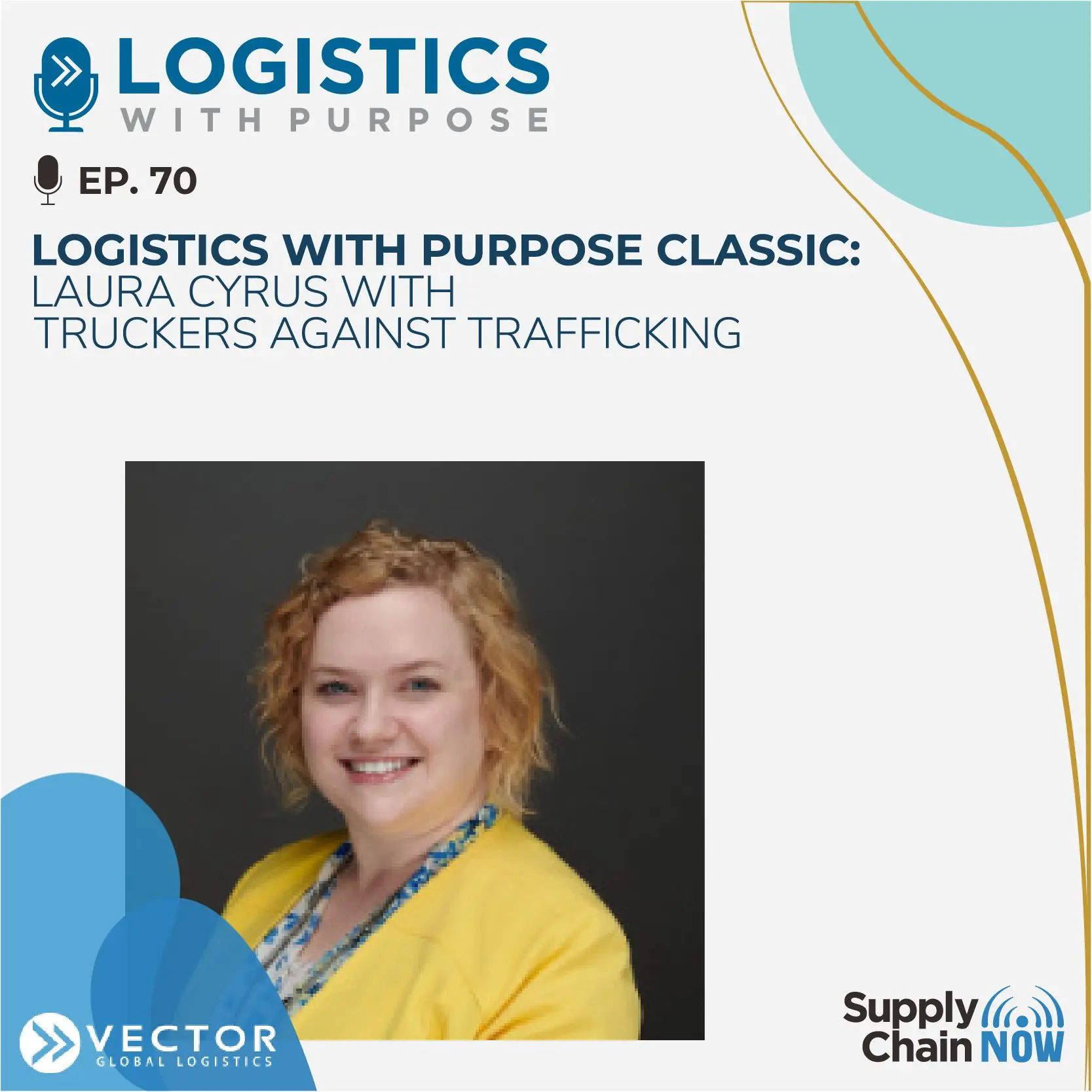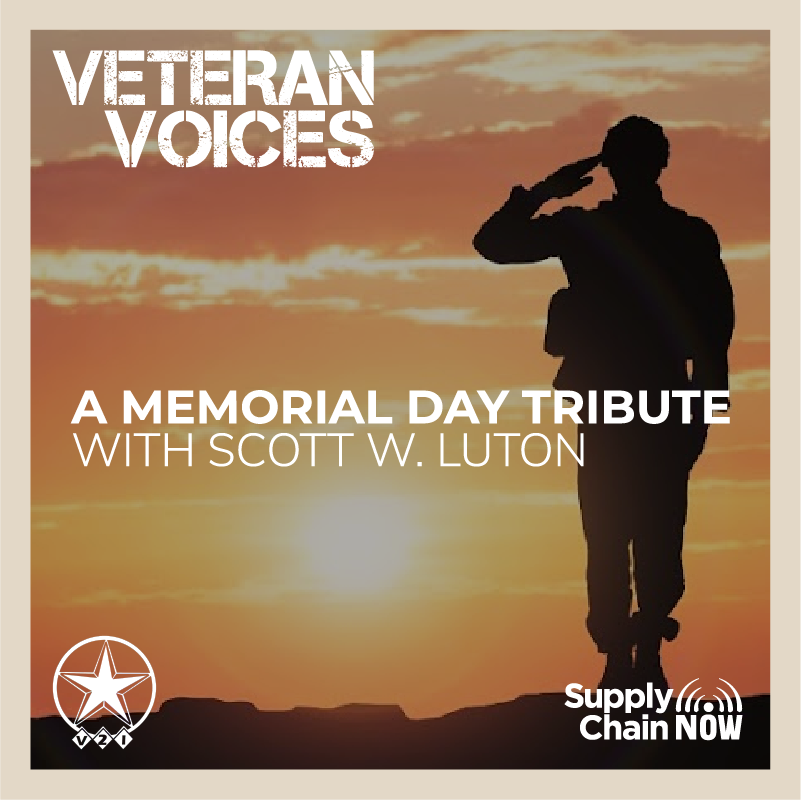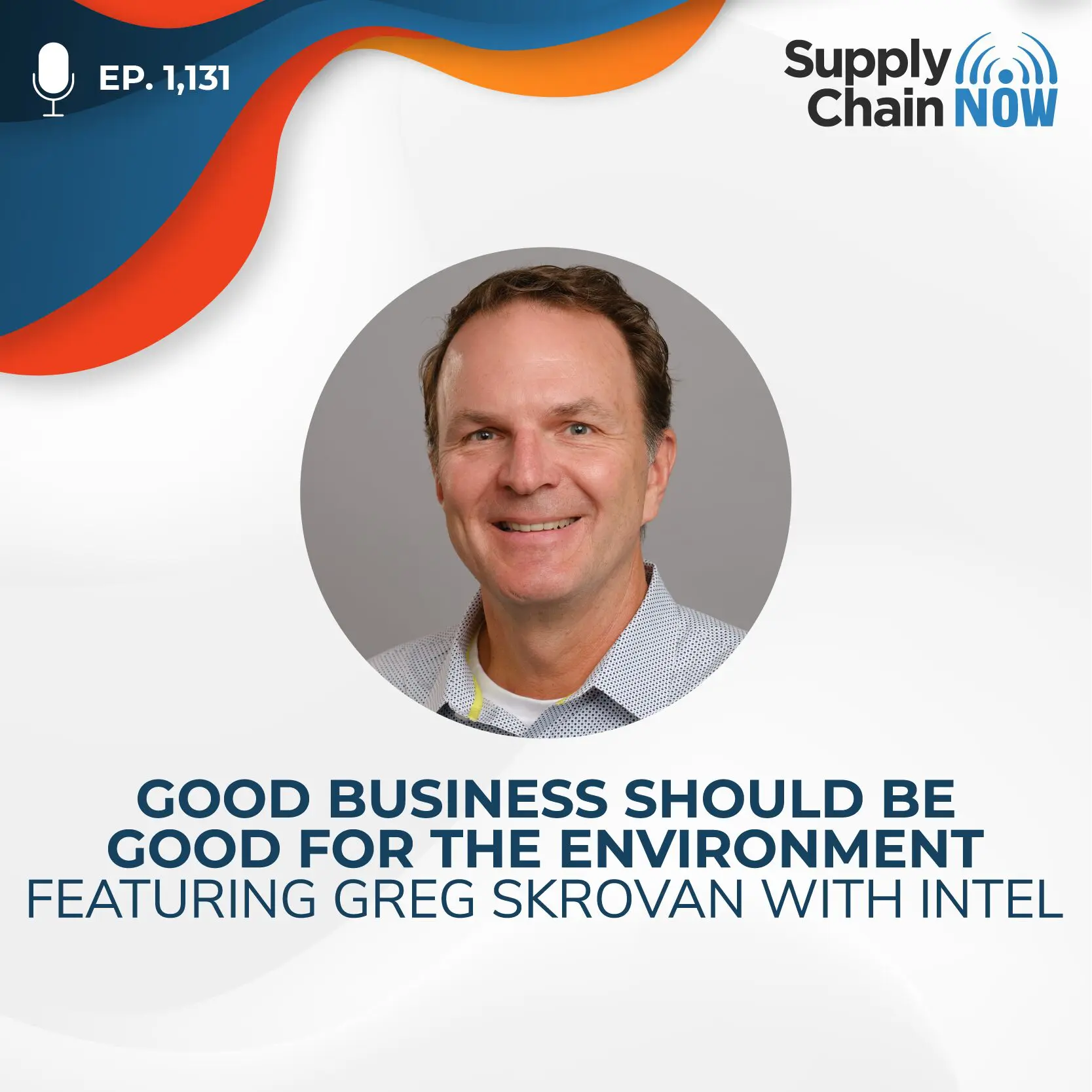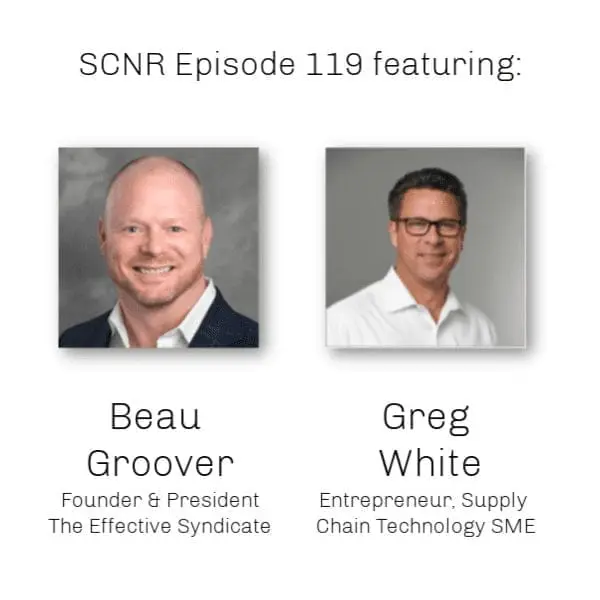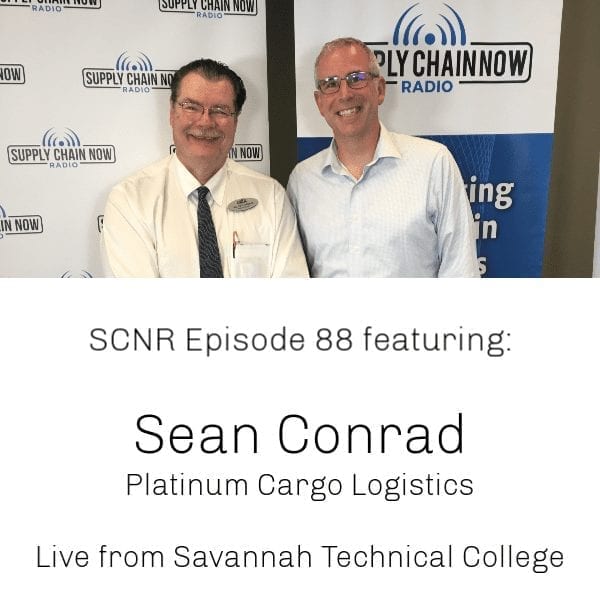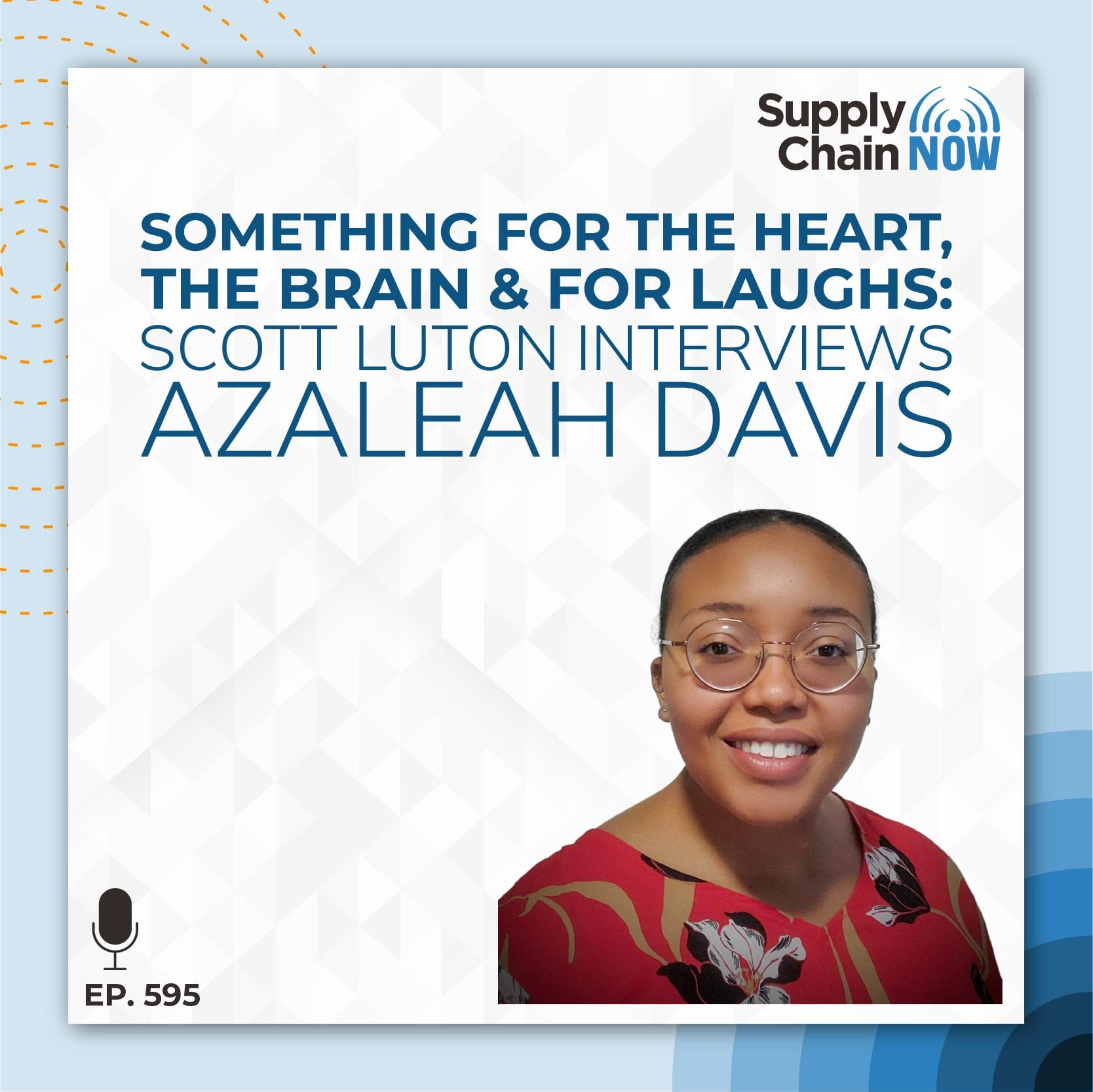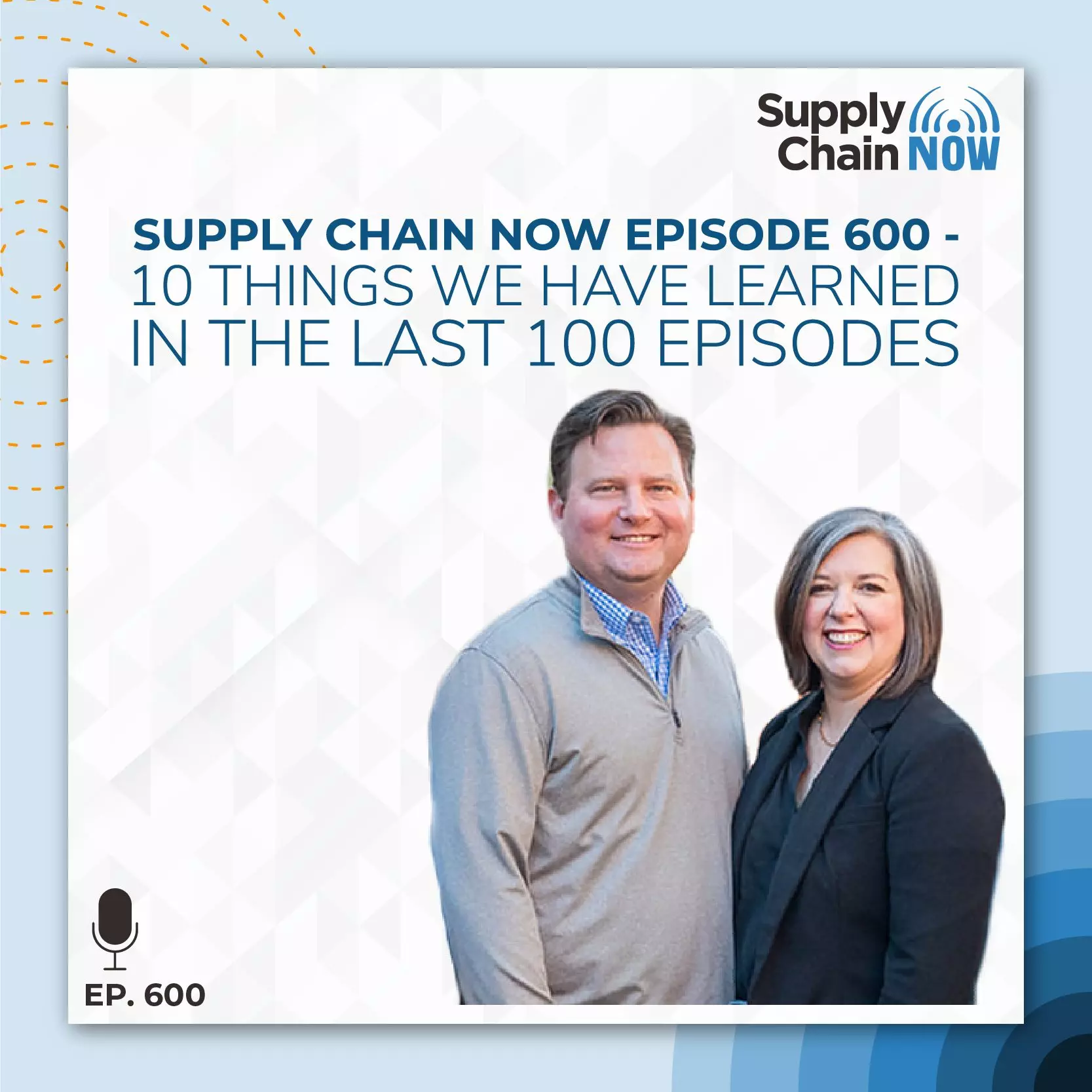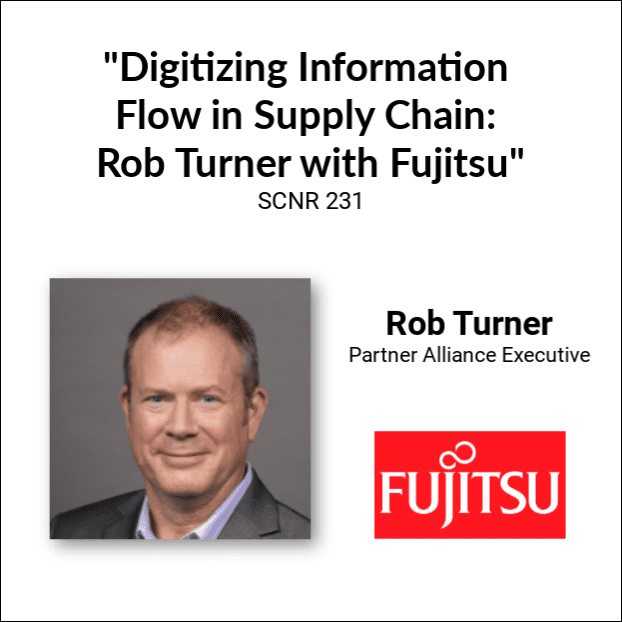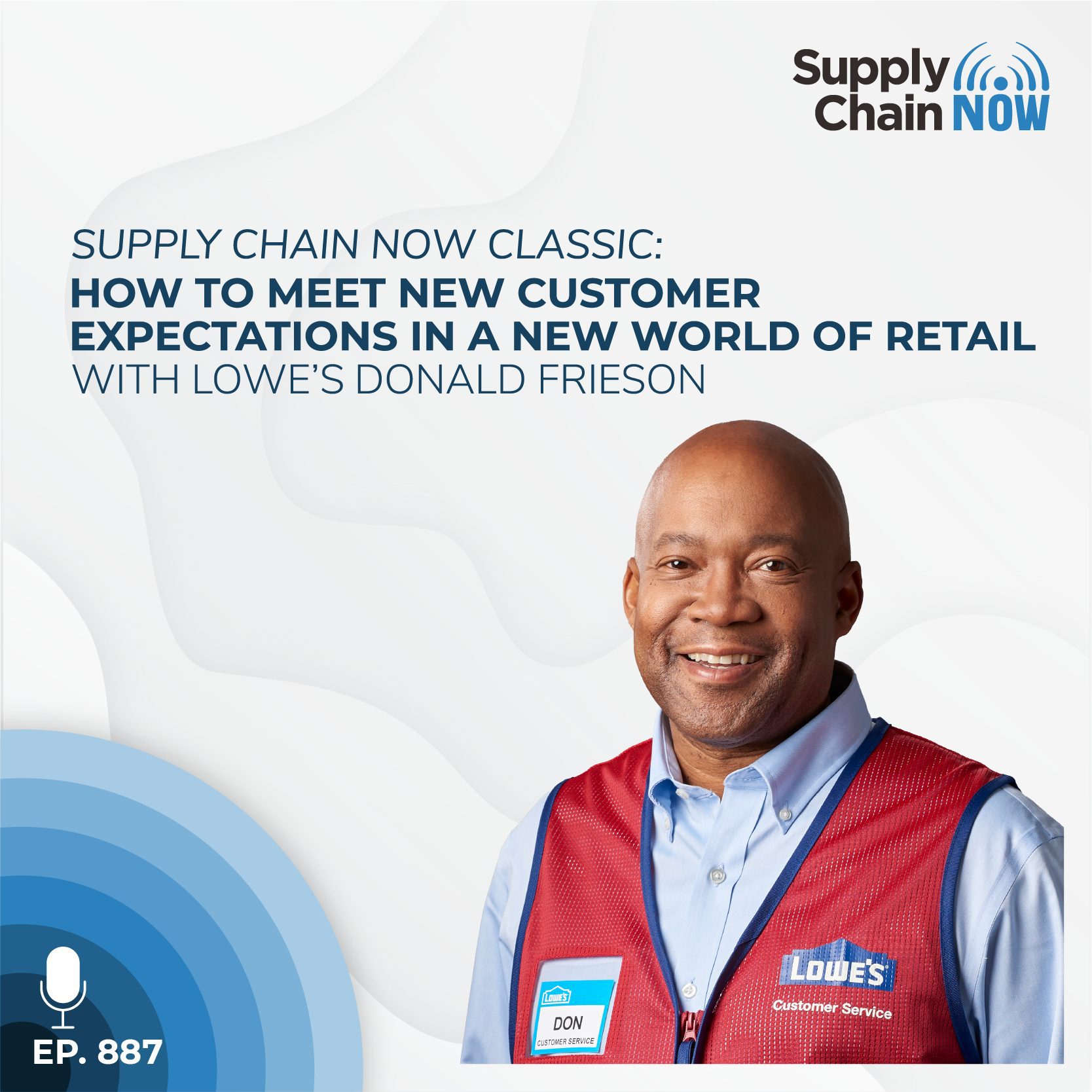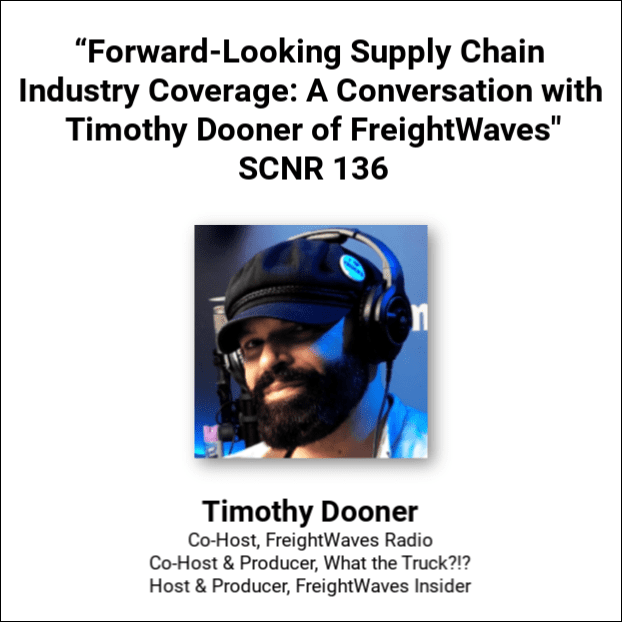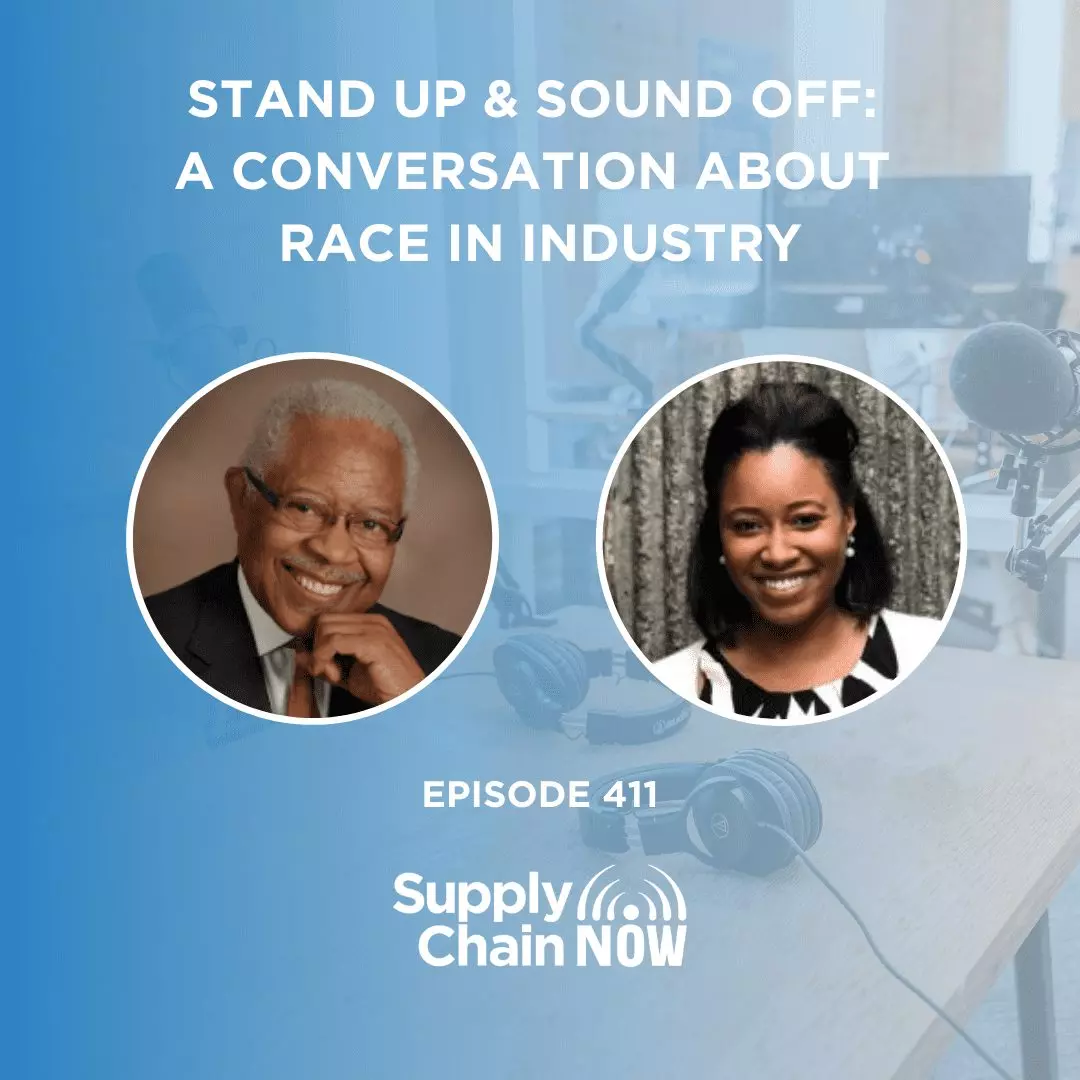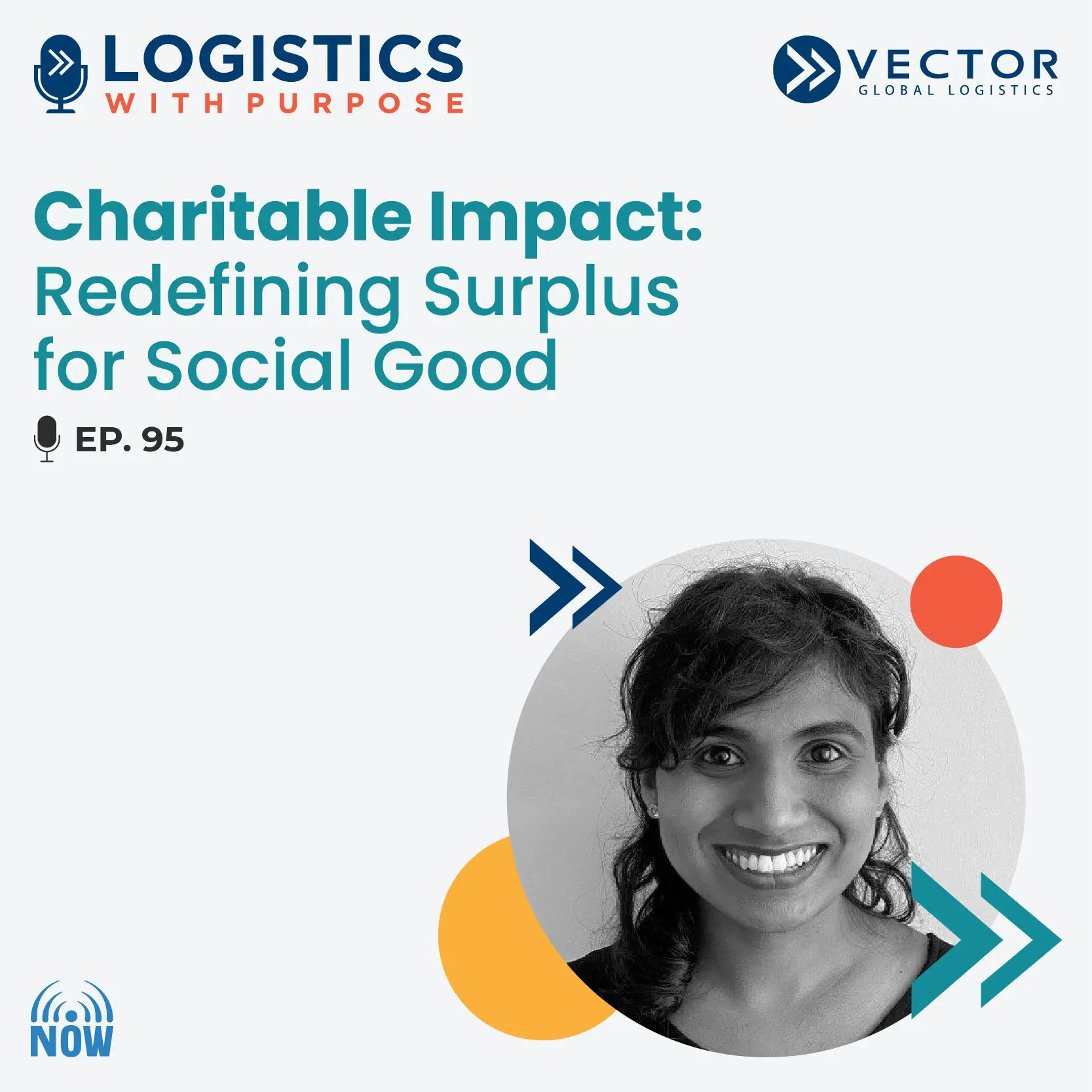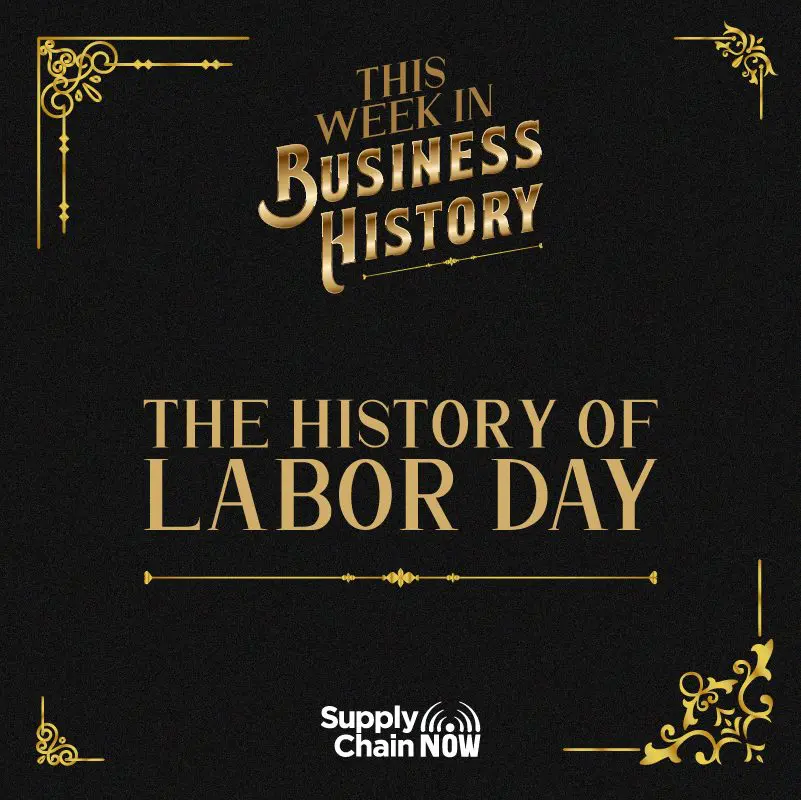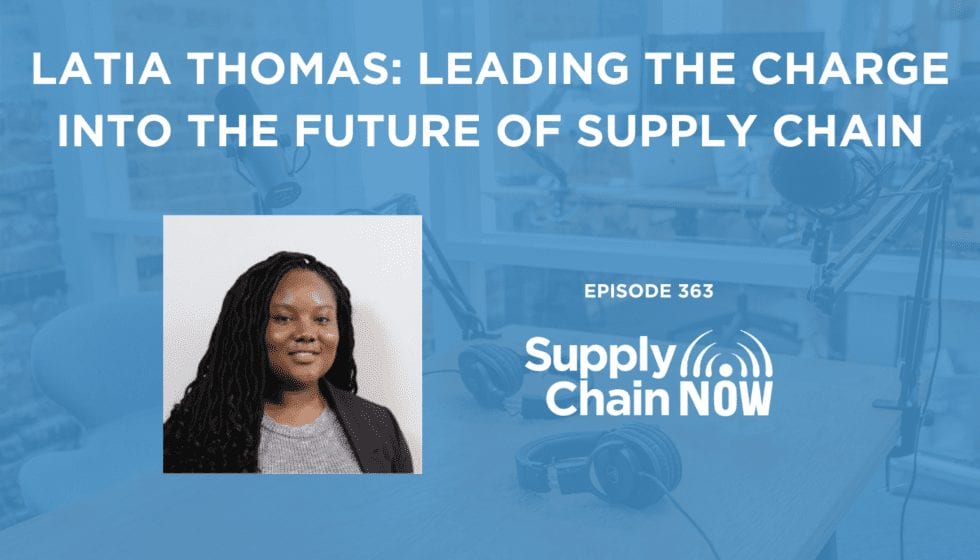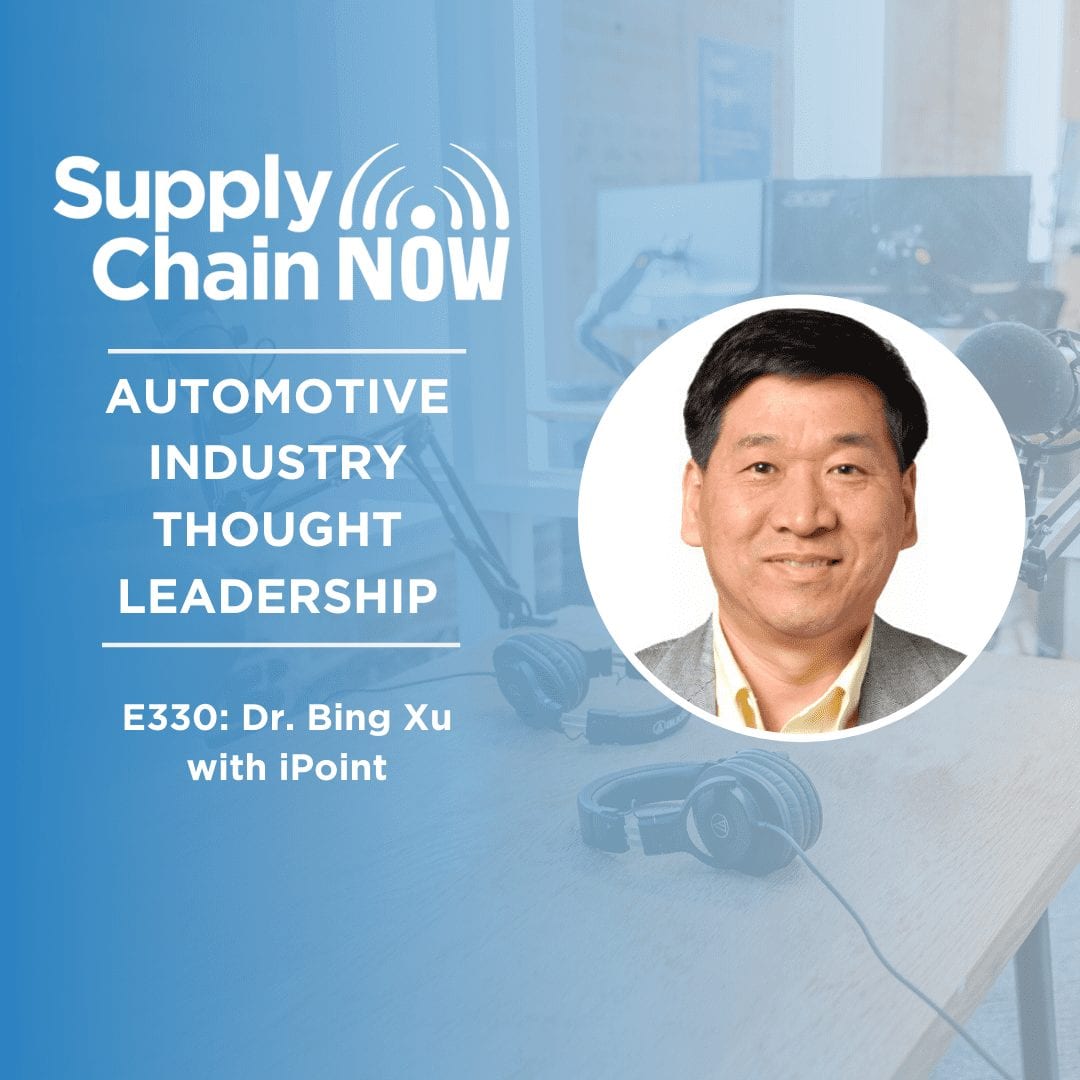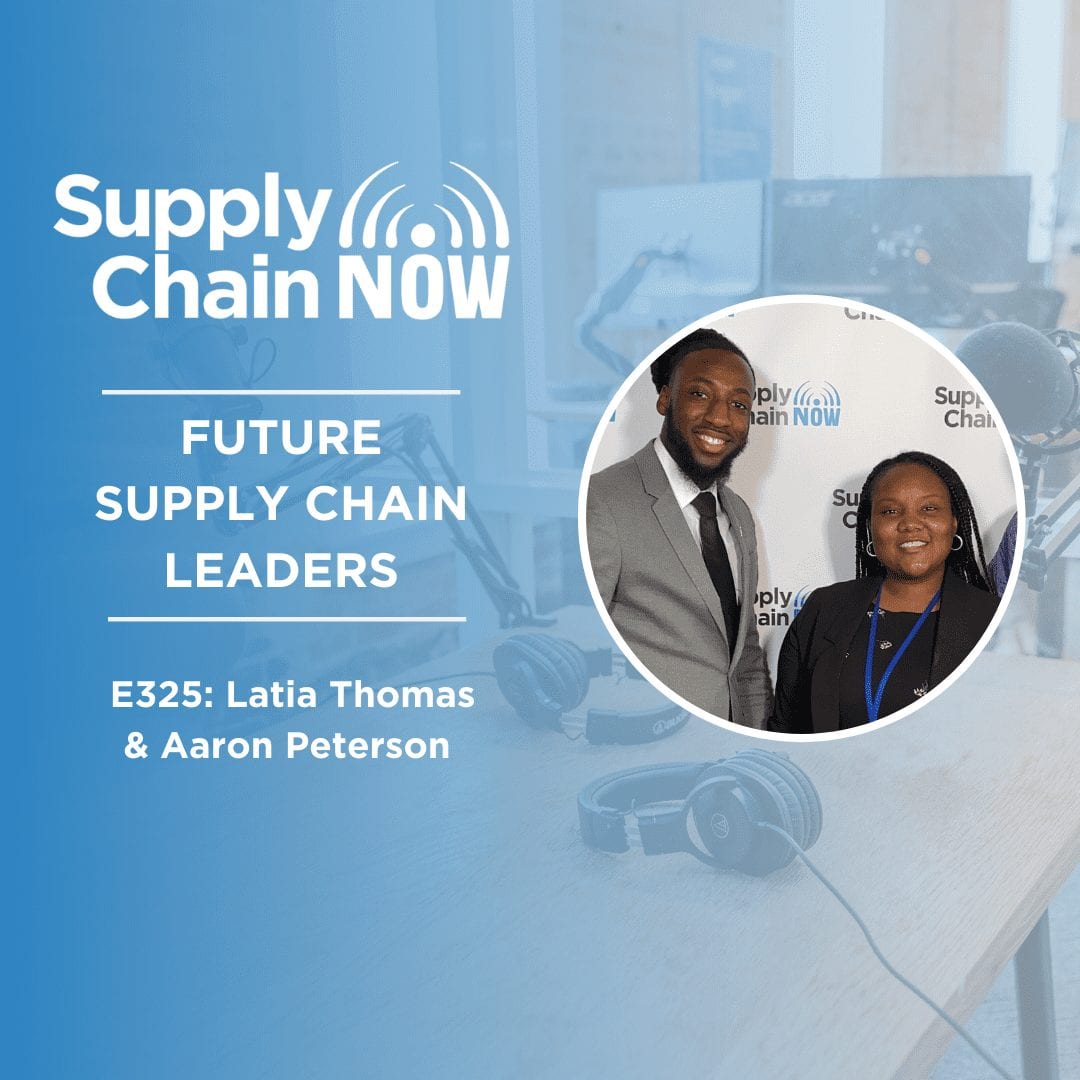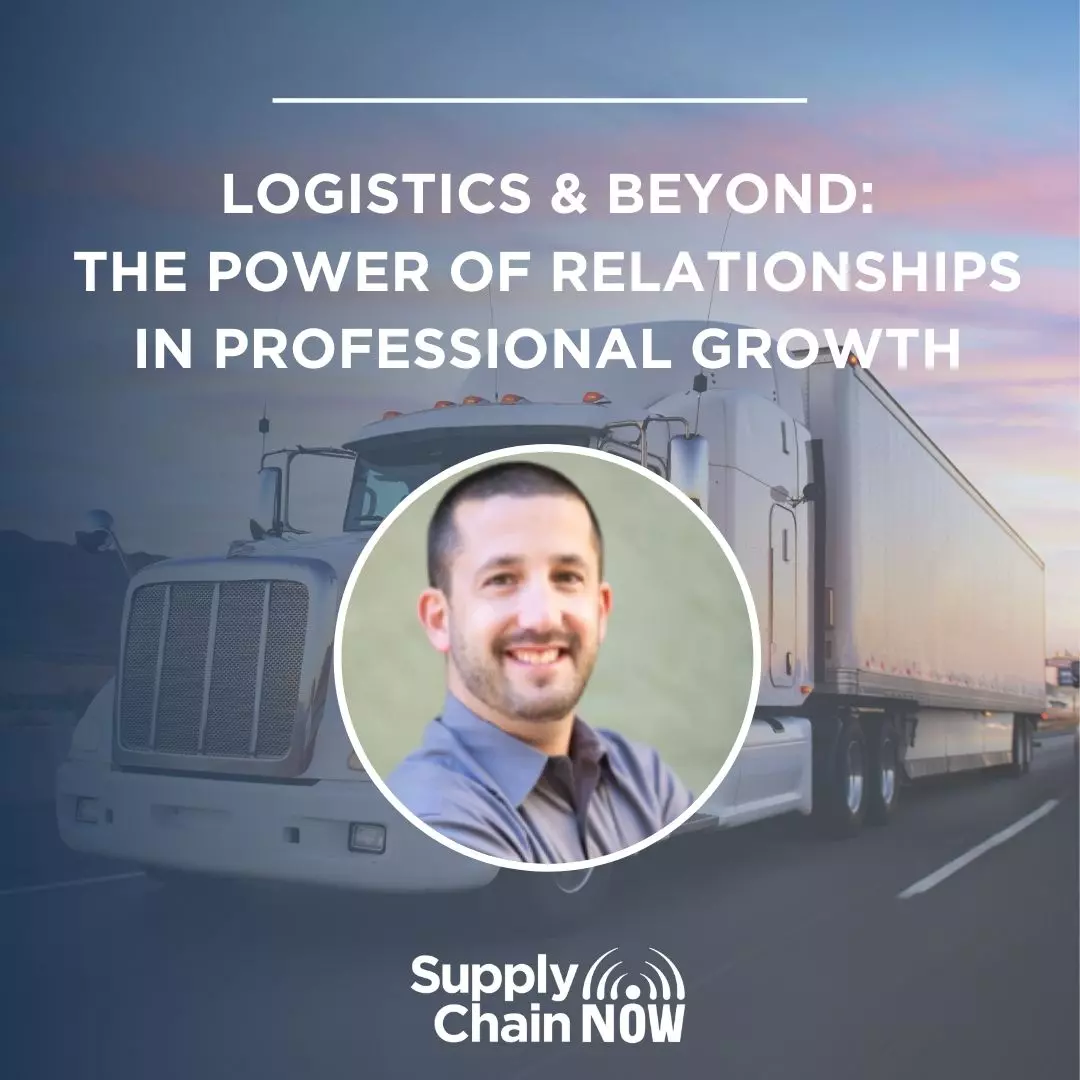Episode Summary
“How many women do you have sitting at the table making those decisions? How many minorities do you have at the table making those decisions? And even if they aren’t managers or someone higher up, are their voices being heard?”
-Latia Thomas, President, Morgan State Student Chapter of APICS
If there is anything about the current moment that is preparing college students for careers in supply chain, it is the need to adapt to changing circumstances at a moment’s notice and land on your feet with a positive attitude. Latia Thomas has been doing just that nearly all her life.
Latia is the APICS student chapter President at Morgan State where she is studying procurement and supply chain management. Whether through APICS, her studies, or summer internships, she has already experienced a number of situations that have tested her knowledge and professional agility.
In this conversation, Latia returns to Supply Chain Now to provide Co-hosts Greg White and Scott Luton with an update on her professional journey and perspective on the supply chain field:
- The importance of being able to relate to and communicate with a wide range of people in an increasingly diverse workforce
- How COVID-19 may be presenting the supply chain industry with a huge opportunity to increase general awareness of the exciting career opportunities within its ranks
- A recognition that the best, most innovative ideas, don’t always come from the upper ranks of a company structure, and that to benefit from those ideas, leaders must always be listening
Episode Transcript
Intro – Amanda Luton (00:00:05):
It’s time for supply chain. Now broadcasting live from the supply chain capital of the country, Atlanta, Georgia, heard around the world. Supply chain now spotlights the best in all things. Supply chain, the people, the technologies, the best practices and the critical issues of the day. And now here are your hosts.
Scott Luton (00:00:29):
Hey, good Friday afternoon, Scott Luton and Greg white with you here on supply chain. Now welcome to today’s live stream. Greg, how are you doing?
Greg White (00:00:36):
I am doing great. Scott. How are you doing?
Scott Luton (00:00:40):
I’m fantastic. I mean just all things considered. Yep. Challenging circumstances for everybody, although we’ve seen some signals, right? Hopefully we’re getting into, into the new normal. We’ll maybe talk more about that. But you know, this show we’ve got teed up in particular. Um, I’m excited about, we’re bringing back a repeat guest, which we always love. Yup. Uh, so today’s episode we’re reconnecting with Latiya Thomas, a student set to graduate soon from a prestigious Morgan state university. Uh, she’ll be graduating in December. We’ll talk more about that, but I can’t wait. Hey, look, I’m partial who our audience are, heard her a couple a month or so ago. It’s probably partial. Uh, you’ll enjoy her thought leadership and her passion for what she’s going to do in supply chain, what she’s already done to some degree. Yeah. Uh, so we’ve got a great show lined up that way.
Greg White (00:01:29):
Yeah, no doubt. I, I’m, I’m excited to hear what she has. She’s doing what she’s recently done and what she has planned. So, um, let’s, let’s do this.
Scott Luton (00:01:39):
So one programming note before we bring on Latiya Thomas, if you enjoy today’s live stream, we’d encourage you to check out our podcast wherever you get your podcasts from today. We published a very unique podcast in terms of our programming, which is almost 350 episodes deep. Now it’s all about the 20, 20 hurricane season. That’s going to be pretty unique. You know, I’m not sure ever in our history we’ve had a hurricane season. We’ve had to navigate during this global pandemic environment, uh, and it has got a lot of potential to be, uh, extra challenging. So anyway, resilience three 60 and risk. Paul’s joined us, uh, in the remote studio for a great podcast that you’re going to pick up insights and as we’ll touch on in to today’s live stream, they’ve got upcoming webinar opportunity that you hear about in the podcast that we’re encouraging everybody to check out so that you know, you’re more informed, right? Greg?
Greg White (00:02:33):
A disruption. We’re very familiar with hurricanes piled on with a disruption that we’re not very familiar with, this seismic societal disruption in pandemic. So, well, it’s going to be an interesting, interesting time, but I think we’re ready for it. Yeah. As ready as we can be anywhere
Scott Luton (00:02:51):
that’s right. And supply chain, we’ll put it in a headlock. They’ll figure out where the gaps are and they’ll lead us into the new normal. So with that said, let’s welcome and Latiya. Hey Latiya, how are you doing? I’m well. How are you? We are doing fantastic, right Greg?
Greg White (00:03:11):
We are, how do you like our swipe? What do you think of that? Yeah, welcome.
Scott Luton (00:03:19):
It’s the little things in life. And let me entertain with the, yeah,
Greg White (00:03:24):
you gotta be the grownup in the room. That’s right.
Scott Luton (00:03:27):
Today’s session. You must be okay. So Latiya we’ve got to give you the formal introduction. Um, and, and those that may have heard your earlier podcasts where you and, um, Aaron participated with this, uh, hopefully they enjoyed it as much as I did. So, so this is maybe repeating ourselves a bit, but I want to set the stage here. So Latiya is a senior at Morgan state university, president of Morgan state university’s apex student chapter. Just let that, that’s right. We already have a successor, so she’s ahead of the game. We’ll talk about that as we get into the conversation. She’s been juggling all of, you know, being a senior in a, in a tough major, uh, serving as a volunteer student leader in a, in a, um, I’m sure a hands on organization. She’s juggling all that. Also serving as site administrator or she’s working for a global retailer. Uh, and as if she has any free time. She’s about to start an internship, which will tell you more about, and she also has been out in industry before the world changed, at least, uh, where we first met Latiya in beautiful Arizona at the dim SCA event, which was, uh, if you haven’t heard of it, diverse manufacturing supply chain Alliance. Let’s see, you must have like two or three clones. I don’t know. Very little sleep.
Scott Luton (00:04:46):
Well, uh, the prod of middle river Maryland as well. Greg, I am going to get that in. That’s where Latiya resides and where her hometown is. Um, let’s see, uh, great to have you here. And let’s do this real quick. We’ve got a couple folks that are tuned in on LinkedIn in particular. Uh, hello James. Hello. Uh, Oh, st Claire is back with a Saint. Claire has been a former, uh, guest and webinar presenter based up in the Northeast st Claire. Hope you’re doing well, sir. Uh, and memory, a memory is bashing back memory is a buyer down in South Africa, which I never forget. You know, Greg? Oh, buddy, that was a good way. Uh, some memory has been part of our live streams and a big contributor towards, um, uh, the conversation, these things present. So, Greg, let’s dive into Latiya Thomas’s story.
Greg White (00:05:40):
I got to tell you something really quick that, that Latina is long, long list of accomplishments and, and undertakings made me think of the other day I was sharing some thoughts with Claudia fried. Um, and she reminded me of a phrase that shaped my life when I was in college. And that was if you want something done, give it to someone who’s already busy. That momentum and inertia is, is in your favor, right? So stay busy and stay productive. So that, that’s brilliant. Yeah. I mean, I unfortunately didn’t get to, didn’t get to get to Phoenix, one of my favorite cities and get to the conference. It’s okay. It’s not your fault. Um, but, but I did get to view your interview there. Um, and, and was impressed. So I’d love to share a couple of questions with you. So, you know, for starters, tell us a little bit about yourself or anyone who hasn’t watched your previous episode. And, um, well let’s start there. Tell us where you’re from as, as Scott likes to say, share a few key nuggets from your upbringing.
Latia Thomas (00:06:51):
Okay. Alright. So I am a first generation college student. Um, I’m the first in my family to graduate high school as well. Um, so I live right outside of Baltimore, as Scott mentioned in middle river that’s in the County of Baltimore. And if you guys didn’t hear on the podcast, when I embarrass myself on this life’s journey, I know how to ride bikes.
Greg White (00:07:17):
I still don’t know now.
Latia Thomas (00:07:19):
Still don’t, you know, when we learn, you know, so, yeah,
Scott Luton (00:07:27):
no, that’s okay. Hey, that’s your biggest gap in life. You are going to be okay. But yeah, Greg does take that personal, he not only rides bikes, but he rides a big bad motorcycle,
Greg White (00:07:35):
correct. Yeah. Yeah. Why, why stop now? Let’s start with a bike. That’s right. I will hold it for you. I promise I won’t let, I won’t let you fall, you know? Yeah.
Scott Luton (00:07:51):
Well that can’t be. So tell, you know, growing up middle river, what else beyond the bike thing? Who cares about that? What? Um, that’s nothing. Uh, what else? What’d you enjoy doing growing up?
Latia Thomas (00:08:01):
Yeah. Um, so I like singing. I can sing. Um, I’m a big binge watch on TV and I’ve always been interested in may. So math has always been my thing subject coming up, which is why I always thought I would be an accountant, but that obviously didn’t point out the way I expected. Um, and I’m big on family so I’m really close to my immediate family, my siblings and my parents. And that’s something that I hold close to my heart and being a role model for my niece and nephews, I think done very well.
Greg White (00:08:34):
Awesome. I got to tell you Latiya we need more people who would be accountants or finance or mathematicians. We need that in supply chain. It is so technical and technology is becoming more and more prevalent and there’s so much statistical and intelligence analysis that needs to be done. That’s such a valuable skill. So I’m glad that you did that and I’m glad that you were able to share that with people because that’s an important thing for other students to know is if you love math, this is a great industry for you to meet. When I was with her, uh, Latiya and the students out in Arizona back in the February before the whole world changed, at least in the States, right. Um, I quickly found out that I was, uh, they are well above my pay grade when it comes to the technical side, math, engineering, you name it.
Greg White (00:09:34):
So, um, I’m really appreciative that some folks out there not only enjoy it, but they’re good at it. Yeah. Um, so tell us an a great, one of the things we’re curious about is what, yeah. Why, what, what pointed you towards supply chain? So let me just share a brief history. I’m a political science major because I’m not good at math. Um, but I graduated, right? Uh, before the Berlin wall fell. So there was no communism to study or you know, no, no cold war anymore. So I had to find something else to do. And I wound up landing in supply chain. So Scott and I really, when we went to school, there weren’t degrees in supply chain. So I’m interested in, whenever I meet a student who has focused in supply chain, I’m really, really interested in how did you get pointed this direction? What was the catalyst, right? What drew you to supply chain?
Latia Thomas (00:10:29):
So I know for me it was product gets to us and that’s fine, but how, what did I have to do to get through? How did they know when to start sourcing it? Winchell acquire material, winter place, manufacturing or distribution center as far as part or as close as they did. And how did they, how did the company decide on making it profitable for them but still consumer friendly and price. And I always thought accounting’s did that accounting and finance professionals until I got to one accounting class and I found myself just going to class just to keep my GPA up so I don’t fail. My professor who’d been complaining and he working to his office, I was in statistics that day and I was like, Oh my gosh, I’m in trouble. I messages just failed and he doesn’t want to embarrass me in class. Like okay. He came and he was like, you know, she could sit her supply chain and like most people, I’m like, okay, what is that brochure? And he was like, take it as an elective and acting. And I loved my teachers, the cancer clinics and I used to be so upset and I’m like going, I’m paying for this.
Greg White (00:11:35):
So what was that first class? Latiya that that got you hooked. What was that first class at Morgan state? Yeah. What’s
Latia Thomas (00:11:43):
three 30? So it talks about logistics and transportation. Um, the first phase of logistics and transportation cause we take two courses in it. Um, and I had an adjunct professor who worked for a third gal company, so he was applying real life situations and I was neat. And from there I just, I went right to my chair. Person was like, yeah, I just want to change my major. I’m sorry.
Greg White (00:12:04):
Right. Do you have such an inquisitive mind you want to know? I mean, I gotta tell ya. I’m not sure I did anything but be frustrated when stuff didn’t get to me. I didn’t think about how it all broke down, how it was profitable and, and all of that. You know, how does it happen? Yeah, I’ll tell you that will serve you well. And it’s impressive. You have a bit of an engineer inside you somewhere, right? It’s kind of like you see a, he, he’s like, okay, meet in China. Cool, but
Latia Thomas (00:12:38):
where are the materials from China? Where did they get these materials from that they had to get the materials to China, how it turn the production timeline and what timeframe does it have to get to the DCS in order to make it to the retailers or the customer? So I know there’s a lot to it, but in my head at the time I’m like, okay, accountants do that because they talk about pricing and deal with numbers and money. Yup.
Scott Luton (00:13:02):
Well, Hey, let’s, uh, let’s, let’s shift gears a bit cause I want to dive more into, uh, the coming update and then we’re going to, as, as Greg eloquently laid it out on the front end, kind of where we’ve been current state and where we’re headed. That’s going to kind of map out this conversation with you real quick. Uh, Mary Comans, uh, going back to the bike conversation says that two wheels is much better than four. All right, Mary, uh, I don’t know if I could still ride a bike spend. They’ll know 20 years since I’ve tried one. We’ll see. Right. Um, memory says don’t worry Latiya you’re not alone. She learned to ride at 28, so memory shared some. So her journey, uh, and then Brian Bird song ups, there’s part of the LinkedIn audience today and he’s going through, uh, it looks like apex training with our friend, uh, Chris Barnes.
Greg White (00:13:51):
Oh, it seems really
Scott Luton (00:13:53):
small world. So let’s talk about, uh, let Tayla switch gears. Uh, as we talked about a couple of times already last time, well, when you and I first met, it was at a great conference, great event, dim SCA. We’re going to be interviewing David Burton in a few weeks here, the leader of [inaudible], um, out in Arizona. And um, but that as we talked about, that was in the February the States. I mean it’s arguable based on who you talked to, but really that first full week in March, the week of mode X is when the States really changed. Um, by and large, what have you been managing? You and your family have been managing these, you know, challenging times since then?
Latia Thomas (00:14:32):
Well, luckily I’m a supply chain major, so I’ve been prepared to adapt at any moment. Um, when we left school, we were under the impression that we would just be gone maybe a week after spring break and then return that to see, uh, things which has passed through and it didn’t we down for the rest of the semester and go to a remote learning setting. And in my head it was, okay, it’s here. The change has already happened. What am I going to do to adjust and get the results that I want in school to get straight A’s. So w what can I do? I can sit here and cry about it or I can pull my pants up and adjust how I see fit. And that’s what I did. Cause you can’t change things you cannot control. Luckily so far out all my grades I’m hitting towards StreetEasy so
Scott Luton (00:15:22):
I love there’s so much there and what you just shared, it’s going to go back seven different t-shirts. Latiya we’re going to owe you some, some commissions, especially straight A’s. All right, so let’s see it. Let’s talk about your involvement. Uh, APEC student chapter. Well first off, let’s talk about your key takeaway or two from the Dems case conference. We skipped right over that. What, what was your favorite aspect of that or are some key lessons learned?
Latia Thomas (00:15:53):
I’m hearing about supplier diversity and how important that is in the overall supply chain. Really stuck with me. Um, sustainability and then implementing data analytics into the supply chain. Um, whether it’s predictive, prescriptive, um, it’s very important. And actually I am taking or recently took a data analytics requirement for supply chain and to see how it can make it more efficient and effective. Really wanted to research that more and look into the textbook that I’m learning in the software that we have more depth.
Scott Luton (00:16:30):
Hmm. Hmm. Well, um, so the APEC student chapter moving right along at, um, Morgan state university, you’ve been involved with that for how long?
Latia Thomas (00:16:42):
Uh, this will be my second year.
Scott Luton (00:16:44):
Second year. And you serve as president. Um, have you, so you served a full year as president. What’d you, what’d you, what capacity did you serve in your first year with the chapter?
Latia Thomas (00:16:54):
I was just a regular general body member. Um, so last,
Scott Luton (00:16:59):
well, let’s see. I don’t believe there’s anything just regular about you and I bet you contributed in a major way as a, as a regular, uh, uh, global bar student body member or whatever, whatever you put it there.
Latia Thomas (00:17:10):
So I was a general body member and I was invited to an E board meeting and the person who was president at the time, he wanted to change his major. And it just wasn’t for him and I was temporarily thrown into the position last spring. Um, so we had a few other events with the information technology club on campus, partnered up together and elections came and I ran for president and I was chosen or elected. And this school year we had a lot of events. Of course they weren’t cut short due to the term pandemic, but we were able to increase our, and we provide a lot of services as far as mock interviews, resume building, and information sessions. So students without one-on-one experience with different recruiters, without having to be in a career fair setting, which can be intimidating to a lot of students.
Scott Luton (00:18:06):
Mm, good point there. Um, alright. So what I found interesting is that unlike many folks and companies that aren’t good at succession planning and even volunteer bodies, uh, an organization succession planning is never, not, never top of the list. You’ve already, uh, y’all, you, the APEC student chapter already has a successor, right?
Latia Thomas (00:18:26):
Yes. Genoa, Genoa, Smith.
Scott Luton (00:18:28):
Awesome. And we had happened to interview Genoa out in Arizona, and that’s a very capable successor to use. That’s really, uh, admire that. And Mara, that proactive planning, which your supply chain are you, that’s what, that’s the stuff you do. Okay. So Greg, let me gets more than supply chain. Really don’t you? I mean I think it’s part of who you are clearly. Mm mm. Good point. Alright, so Greg, we’ve got some, we’re kind of curious about some other aspects of, of things that latte has got going on. Uh, do share, can I, can I ask one off topic maybe off topic question. So how did your parents raise you to be this person? I’m interested a little bit in, in, you know, was there a pivotal moment or was there sort of a theme growing up in your household that made you so curious and driven or,
Latia Thomas (00:19:17):
so my parents, um, unfortunately they had a different upbringing, um, coming up so they weren’t able to finish high school and they wanted to make sure that I had the tools and the ability to do so. So they invested a lot of time to make sure that if I had any questions that they can find someone to help me in. How important, not just college, but graduating high school was that was enough for them to have their kid graduated high school. So to go to college was a big thing in my family and they always emphasize how they wanted me to be better than, um, I didn’t have a rough upbringing at all, but my parents always said that I could have it better than them to learn from the mistakes that they made. And my dad was more of a person I couldn’t, I could not leave this house unless my homework was done.
Latia Thomas (00:20:14):
When I go home from school, I need to be at this table doing my homework. And my dad was a football coach and I liked going to football practices. I could not go unless I had my homework done. And if it was a situation where I didn’t do good in on a test or failed a test, I needed to come with an explanation why and how I’m going to do better. So they were very tough as far as school and I had no choice but to succeed. And they may mix that responsibility for any thing less than acceptable.
Greg White (00:20:51):
Your dad, your dad sounds like a really tough guy and I’m going to give you a quick fatherly lesson on tough guys and that is, you better bring a whole box of tissue to your graduation because he is going to be a blubbering mess when he sees you walk across that stage. I guarantee it. He’s going to be one proud Papa. I can guarantee you that. So I, sorry, I just had to know how you became you. And that’s a great, that’s a great story. And by the way, keep that. I mean, and, and relay that because, um, that goal of making the next generation have it better or be better than, than your generation. That’s what makes families work. I mean, that’s about as good as you can do as a parent. So
Latia Thomas (00:21:40):
it’s a big moment. My niece has expressed interest in going to college. I felt like I did my part so far. Yeah. Outstanding.
Greg White (00:21:48):
That’s a great, that’s an inspirational story really. So, um, so tell us a little bit about, um, apex. I don’t know if I’m jumping ahead here, Scott. You know, I’m going to mess up the agenda, right? But I happen to know that you got an assignment and had a contest in regard to apex. Correct. So the April’s a little bit about that.
Latia Thomas (00:22:14):
The apex Baltimore chapter hosted a student paper competition. Um, you had to express why you chose supply chain and why you should be selected to attend the conference. And it was two prizes. The first prize was all expense paid, um, including hotel, airfare and registration. And the second prize was just to have your registration paid for. I wrote a paper on representation in supply chain or representation in career fields in general. How,
Greg White (00:22:45):
yeah,
Latia Thomas (00:22:45):
no matter of your ethnicity, gender, if you’re a minority or not, you should see yourself in all careers wherever you decide to pursue. You should be able to see yourself there. And not only there as an employee, but there is someone that makes decisions and that your voice matters. And I won the first prize of the competition, thankfully. So, um, they gave me a scholarship for the amount that the airfare, registration and hotel stay will call us to leave it up to me if I wanted to travel there with the current situation or the world right now
Greg White (00:23:22):
or for school or whatever. Right. Yeah. That’s awesome.
Scott Luton (00:23:28):
You know, at a time when most of us at least, well, I was in college, uh, uh, writing papers on CA beer and pizza, you’re, uh, contributing your thought leadership in a whole different plane. So kudos to that. Hey, real quick. Couple of comments that we from LinkedIn. One interesting. Two interesting comments from a share. A gauche as part of LinkedIn community says it’s nice that you learn delayed gratification. So early. I gotta tell you, I’m not sure if I’ve ever heard someone remarked that gratification too. So Gosha hope you copyrighted that cause we’re going to blatantly steal it. I’m getting great comment there. Um, and Claudia says here, uh, she’s quality free as turned in part of the LinkedIn labs. She’ll be on the show here in a week to Bravo to your parents for believing in you and your education and believing in education.
Scott Luton (00:24:20):
They must be so proud as we are here in planet supply chain. Now. We’ll love that, Claudia. All right, so now, uh, Greg and I love that departure. That was something that came out in the, in the pre show that, uh, I’m glad we talked about, uh, the not taking anything away from, from your achievement and the process itself. Latiya but, but your point of view there is, is incredibly relevant and we’ll probably talk more about that towards, um, a little further in this conversation. Yeah. So, Greg, let’s keep driving and let’s talk about, um, the internship, right. Internship to be,
Latia Thomas (00:24:55):
yeah. Right. So tell us a little bit about what’s next in terms of this internship. Yeah, go ahead. Sorry. No, you’re fine. I have, uh, been extended an offer with back now, um, as a procurement contracts in turn in the corporate function and very excited. I’ll start in June. Unfortunately, due to the pandemic, the internship has been reduced significantly, but it’s still be a great experience. I’m excited to see the project and the task at hand and be able to work in a different function than my past internship with um, Stanley black and Decker.
Scott Luton (00:25:37):
Hmm. Well, what was that previous internship focused on at black and Decker?
Latia Thomas (00:25:42):
Um, it was the analyst roles out of the sales app, operations analyst, intern, um, for global tools and storage. So I was working with different suppliers would you say so or different companies of Stanley black and Decker to reduce back orders. And if it was a back order, maybe it was discontinued in suggest replacement items and work with different sales representatives to ensure that they can get those items out to the customers. And I was able to exceed my goal, um, there and we were able to participate in a shark tank like inspired project where we were to make an innovative product that reduced shipping costs and transportation costs and the ease of transport from the store to the home if customers didn’t want to rent a truck to get a storage solution. How, what we could do and love it. It was fun. I liked of what was the solution?
Greg White (00:26:44):
I just got to know.
Latia Thomas (00:26:46):
Um, I’m not sure if I can say,
Greg White (00:26:49):
Oh, okay. They’re using it. That means they’re using it, doesn’t it? They’ll get a suit, Greg, man, no kidding. Please. Yeah, please don’t give it up. But that’s impressive that they’re using it. So, so, so your, your internship ends in August. Yes. I have a feeling there’s a couple thousand people out there going, when does that end? Because when is she going to be on the market? I mean, assuming that Bechtel doesn’t, doesn’t hire you, which they very well might. I mean, by the way, we should encourage all supply chain students out there get an internship. Right. But let’s say they don’t hire you. When will you, will you be available to go to work for somebody full time?
Latia Thomas (00:27:31):
Well, I graduate in December, December, 1820 20 I graduate and I’m hoping to secure a job sometime in the summer or waiting for graduation, um, to ease some of the stress. Um, typically Mae graduates are looking for jobs around the fall semester and I don’t have that because I graduate in the fall semester, so I had from now and so I land a job full time job in supply chain to get something in with the way recruitment works. It’s kind of like internships are posted and then it’s a big break and then they post for pretty much may graduate. I’m also interested in development school programs or leadership rotational programs just so I can experience it, different parts of the supply chain in three years, typically as a rotational program.
Greg White (00:28:24):
Okay. Okay. Awesome. So would you, I mean I’m just curious about how this Bechtle um, internship works. It’s not the kind of internship that could turn into an offer from Bechtle or it, or could it be,
Latia Thomas (00:28:41):
it could. Um, what would happen is if it is an offer, it will be post-graduation. Um, so I would do my internship for the four weeks. So from July to August and then returning back to school should have offered the extended, they’ll give me a new start date sometime after graduation.
Greg White (00:29:02):
Yeah. Hmm. Okay. Good. So, I mean, so you could, I mean, if somebody is interested that somebody could explore your interest in their company now. Yes. Right? Yeah. Okay.
Scott Luton (00:29:16):
And you know what, Greg, we have made it extremely easy. Uh, we have added Latina’s LinkedIn profile into the show notes of I think the Facebook feed, the LinkedIn feed, and the YouTube feed of this, uh, this live stream. Uh, Hey, quick sidebar as not, not to steal your thunder here, but st Claire who we talked about earlier, Latiya who is VP of education for apex New York city, uh, chapter
Scott Luton (00:29:42):
long, long Alan’s, right. Uh, proud to see you wearing your apex shirt with TIAA. And that’s a, you know, Greg, that’s an important distinction and differentiator that we’re hoping with Tia and all the student members that get involved in the groups like that, whether it’s apex or CSC, MP or ICM or all those other professional certifications, they can leverage that for, for at least conversations, right?
Greg White (00:30:05):
Undoubtedly. And also the certifications and the prizes that you can win for these contests. Those, I mean, those are where you show your practical expertise. And that’s so critical. I mean, when a student comes out of school, you know, the, the, the paradox that so many face is when they’re looking for a job, they, they have no experience. Right. They have no practical experience. And with an AP, with an apex or other certifications and organizations like that, you gain real and practical expertise that can be applied immediately on the job. Yeah. Right. Good point. Okay.
Scott Luton (00:30:44):
Okay. Hey, um, so Greg, I know we’re curious as we, when we talk to anyone, this intern about and, and Latiya may have the shortest answer in interns, she might not have been surprise very much, huh?
Greg White (00:30:57):
Yeah. Yeah. So, yeah. I’m curious, when you, when you did your internships, I can imagine the one at black and Decker, you probably already know the answer to this question. Was there anything about supply chain, about the role or about the working environment that surprised you?
Speaker 6 (00:31:17):
[inaudible]
Latia Thomas (00:31:17):
not, not going to surprise me, but it was, um, SAP was alarming to me in the beginning. It was my first time being exposed to that software or that ERP system. So it took me a little time to a debt and I didn’t imagine that because it’s a global company, the delayed response, how that would Condit shift my Workday. So I had to kind of plan accordingly because sometimes I’m responding to emails to people that are in a different time zone. They’re still sleeping and they’re going to respond to me overnight. So I had to pour out, prioritize that accordingly. But um, before an adjustment curve in a way that’s answering your question too is SAP. Um, I didn’t realize how prevalent it was in supply chain until I interned at Stanley black and Decker. And then I ended up taking a course in it that following semester, which I think helped me pass that course or alleviated some of the problems I probably would’ve faced without it.
Scott Luton (00:32:26):
So Greg, that, uh, I know what we’re going to next. That illustrates is a perfect segue into this next question, right?
Greg White (00:32:34):
Yeah. I hadn’t even thought about the possibility of a technology like that being the biggest surprise or hindrance or whatever you want to, whatever you want to call it. But tell us, I mean we just talked a little bit about how, how important I believe internships are, but tell us a little bit about how important you feel they are in terms of someone’s professional, um, and an educational journey. I think it can make or break the job search as you mentioned earlier, but I also think it can help you matriculate through college better. Um, again, I was experienced to SAP before I even had the class and I was able to maneuver through the system and pass the players easily because I already had prior knowledge. I can only imagine if my school did not have that class and I did not have that internship that exposed me to that and starting an entry level position and being exposed to it, I think it would hinder my growth.
Greg White (00:33:40):
Um, we can not say you can’t make mistakes when you get into the field, but as an intern you can make more mistakes and not be judged as hard turning moment for you. And I’m so grateful that I had the opportunity to make those mistakes with that internship. And I’m sure it will be mistakes I make with this internship, but it’s a learning curve. It’s a learning moment and a opportunity for me to learn from it. So I think anybody in college, even if you can’t get a paid internship, most colleges will take it as credit. Um, shadow someone in a respect of field that you’re interested in. I think anything you can do to get there, you should definitely have that. Yeah, that’s a great, that’s great guidance. And it is, it does work that way. The expectations are different. You get a chance to wet your feet a little bit in the workaday world before you have to start performing. Right. And particularly for graduates that are going to come into this, this work environment, which is going to be really competitive, having that kind of experience will be tremendously valuable.
Speaker 7 (00:34:52):
That’s some good that you bring a lot of good news to the table. A TIAA, and I’ll tell ya, one of the neat things I’m taking away from this conversation is there’s a lot of companies like Bechtel Bechtle that get it right. They get it, they get it right.
Greg White (00:35:06):
That’s our myth. Everybody up with that.
Speaker 7 (00:35:08):
Yeah. But, um, it doesn’t take much to Greg for me, my little, uh, right here. Um, but Latiya companies like Bechtle, they get it and invest in it and make it happen. And then the world changes and we see these unique times, but they still figure out a way, even virtually, uh, to give you the experience that you’re about to embark on, uh, in, in the, in the month or so ahead that, I mean kudos to them. And really the challenge that companies like Bechtle and like Cisco and there’s plenty other big, big successful companies, global enterprises that do believe in internship programs and making it happen. They’re throwing the gauntlet down to the slew of companies that still, that are active in supply chain and they don’t participate. Even a small early stage company like supply chain that we’re trying to figure out the right approach for internships and get involved kind of a different side of the supply chain world.
Speaker 7 (00:36:03):
So good stuff from the Bechtle team there. Alright, so let’s shift gears a little bit. Uh, Greg, I love Greg’s questions earlier. Uh, around the white paper that you wrote and um, and some of your preferences. And we’re gonna talk more about that now because you are, um, you know, we have the, one of my favorite parts, at least about my job here is I get to talk to the future of supply chain leadership, right? And we get a chance to put our finger on the pulse of what drives you and your motivations and your preferences and the change you want to. You want to make the impact, you wanna make them splashing. But before we get there, let’s talk about what you’re looking for in your, your employer coming out of college.
Latia Thomas (00:36:47):
Um, one big thing to me is diversity and inclusion. Um, not again, as I mentioned before, not is someone that’s just an employee. Are my decisions heard? How many women do you have sitting at the table making those decisions? How many minorities do you have at the table making those decisions? And even if they aren’t managers or someone higher up, are their voices being heard? Um, another thing for me would be giving back initiatives. How do you help the community? What are you going in the areas that you’re operating in and you care about your community as a whole. And sustainability, not even in just the supply chain context, but global you like, are you helping reduce emissions? Are you worried about the environment and not just how it can just benefit your company, but as a whole,
Scott Luton (00:37:45):
you know, I love that. And, and we’re seeing that play out across, uh, data, uh, related to generational transfer, whether it’s consumer wise or whether it’s it’s talent-wise or you name it. Um, what else? So, so, um, you know, w from a functional standpoint or from the dynamics of your role, what else are you, would be really ideal in that first role coming into Morgan state?
Latia Thomas (00:38:09):
Um, and then I would like to know how can I grow? Will I be in this position forever or is there room for advancement? What’s the typical turnaround time to advance to the next position? Um, and
Latia Thomas (00:38:28):
I just want to be able to be able to look at somebody and relate to them to be able to have conversation with not only someone in my department but someone in another department, the VPs, the directors. Because one day I want to be in their shoes. What did you have to do and what hurdles did you have to get over? And with the trying times now, what kind of work environment do we have? Is it strictly work from home? Can I have a choice to come to the office some days? Am I required to come to the office all day? Um, so having some type of flex situation will be important to me as well.
Greg White (00:39:04):
I am, she hasn’t thought this through carefully. You know, Scott
Scott Luton (00:39:11):
live in sarcasm.
Greg White (00:39:12):
I’m telling you, you, I mean you have already thought through your first job more than I think I thought through my fifth job. So that, that’s right. A really impressive and common frankly. Um, uh, I love how self aware and world aware you are and so many of the incoming generations, um, in into the workforce are, and I think that, you know, as we saw with some other students that we, well now young professionals cause they have graduated, um, as of today, um, from, from the university of Georgia, they, um, they had very distinct desires, very distinct goals and, and real plans for their career and how they wanted to impact the world and how they wanted the world to impact them. So I think that’s, um, it’s encouraging and you can see that this is, this is the part where we take credit Latina and that is what we’re trying to do is make the next generation as your parents did make it better for and make the better gen, the next generation better for the world. Then our generation was. So, um, it’s really impressive that you know, the thoughtfulness that you’ve put into this.
Scott Luton (00:40:34):
So that is a outstanding segue into really the, the final two questions. We’ll take the next 10 minutes to really get into a sector of, so where in the, in the world of global supply chain, where do you want to spend your time and then, you know, impact in general, which I know Greg’s going to ask you about and you’ve got a lot of passion around that. So the first easier part, let’s talk about what functional aspect or what sector or what, um, what segment of global supply chain, you know, ideally where would you like to be?
Latia Thomas (00:41:07):
Procurement definitely. Um, maybe just sticks but preterm is kinda that, it’s like the word we’re all late to determine supplier diversity. You get to make sure these suppliers are being sustainable and have healthy practices. You get to negotiate terms and buying conditions. You get to just make that it all starts well and you communicate with the different functions of supply chain as they all do. But I feel like in procurement you communicate more to make sure that it’s getting there on time to make sure that you’re acquiring the right things at the right time to set. The company has set as applied to be efficient, to be effective, to be great. So procurement is,
Scott Luton (00:41:59):
I love that and you know, procurement is getting a bigger and bigger seat at the table. I mean for years it, that’s been the case. But now with sourcing and how there’s a lot of discussions and vetting to be had, certainly they’ve already started, but certainly the months ahead, um, uh, it’d be an exciting time to be in the procurement space. Okay. What I’m really looking forward to Greg is getting Latina’s thoughts on impact. If you can’t tell she’s, she’s got a little bit of passion.
Greg White (00:42:29):
I have, um, also I have about a half dozen names spinning through my head. I bet you do too, Scott, of of people we need to connect Latiya with if you’re not already connected. Um, one is Tandra Bellamy, uh, uh, of course. Right? Um, and the other is, um, [inaudible] who we just spoke with last week or the week before. Her, um, viewpoint is similar to what I think you’re going to say around the impact you want to have. But if you can see it, you can be at kind of, um, you know, kind of, uh, approach to things and how we need to open the doors and break glass ceilings and all of that sort of thing to make that happen. But yeah, let’s do hear about, um, what kind of impact do you want to make and, and everybody better be listening at this point because I have no doubt that whatever that impact is that she wants to make, it’s going to be made so, so listen up.
Latia Thomas (00:43:28):
So prior to Kobe happening, I don’t think a lot of people knew what supply chain was and if they didn’t know what it was, they did not realize how important and necessary it was to a business survival. And I want to make sure that that doesn’t happen again, that once this virus passed and we get to some type of normal way of living, that the importance of supply chain is everlasting and that more schools are aware of it and offer those programs. So if I can get more supply chain programs into different universities, I’ll be very happy. Um, as for me, Morgan and Telson has a graduate program, but Morgan and university of Maryland were the only two. If when I changed my major that had a supply chain major in the local area. Um, and outside of supply chain is just to be a role model to those my age and younger than me that you don’t have to fall victim to the circumstances that are presented with the obstacles that you are faced with.
Latia Thomas (00:44:36):
Kim becomes better than that and just because as I said, you should see yourself there but just because you don’t, you can be that face there. Um, so to make supply like awareness of supply chain will be my biggest goal on top of being a role model. Um, I think we all can agree we hear supply chain a million times a day now on the news when you never heard it on the news before. Now. Yeah. The broadcast is we have to worry about the supply chain will this last, how will this supply chain supply chain supply chain. And typically what happens is something is the center of the news now, but once they pass and pass and that you should always keep supply chain at the top listing of priority whenever you’re operating the business, whether you’re a big business, small business entrepreneur, whatever, you should never forget it.
Scott Luton (00:45:29):
Hey, let me ask you a question. Let’s see. Yeah. Based on a lot of what you just shared and what you want to do, the impact you want to make in life. I’ve been told, uh, uh, I’ve had an AAV issue and hopefully I sound a little better. Live stream the challenges
Latia Thomas (00:45:45):
we got you now you’re a little scratching. It sounds like you’re in an airplane. So could you pretend to fly?
Scott Luton (00:45:50):
Okay. All right. So let’s see. Uh, um, how can the supply chain industry, uh, really do a better job of optimizing the pipeline of, of a watt array? A lot, the wide beautiful world, a diversity of talent, all walks of life coming into the industry. It seems like we’ve made a couple of strides, but we still have a long way to go. Let’s see. I give, you know, be that reverse mentor that we, that is such an effective practice. If you had a couple of things to share with organizational leaders of what they can do differently, what would those things be?
Latia Thomas (00:46:24):
Um, I think considering the underdog schools, maybe schools that aren’t, that do not get as much publicity. Um, for instance, Morgan where in my opinion an underdog, we don’t get the same type of companies that comes to our career fairs that other schools get as far as supply chain. We have, um, good career fair, but a lot of supply chain companies aren’t there. So, um, how were in things of that nature, you don’t have to be a top named school for companies to want to source talent from there. So to consider the underdogs in to HBC. So I go to a historically black college or university to make sure that that’s in your plan when you do these career fair tours or these information sessions to consider that because that’s where a good portion of the minorities go. Um, so in order to get more diverse, you have to go to more diverse settings. You have to step out of your norm and the normal colleges you go to. I’m pretty sure if you always go this university, I’m pretty sure they know to apply there. They know that you source talent from there. So why not see new faces? Why not explore new opportunities? Because you never know what the universe that aren’t talked about, what talent they have. Yeah.
Scott Luton (00:47:47):
You know, to back up what you’re sharing. Uh, we’ve sat down with a, uh, a very successful global manufacturer that has roots here in the Southeast and, uh, one of their leading talent acquisition, um, uh, leaders, uh, talked about how, Hey, we’re on talent. That’s not what we’re experiencing. And this is really recent. Um, she said that if you take, if you’re very intentional about getting outside of those, those standard stuffy avenues for finding talent, that you can find so much channel out there, you’re just, you just can’t ignore it. You’ve got to engage and you’ve got to, as you were talking about Latiya go to the schools that maybe you hadn’t thought about, bake that into your plan. That’s what I’m hearing you talk about, right?
Latia Thomas (00:48:33):
Yes. Um, for me, in my opinion, on the correct, there’s, we have a great career fair. It’s just more so for not for supply chain. If I’m being completely honest, um, I can go there and they’ll be, Oh, we have that role but we’re not really recruiting for it, which is mind blowing because it’s kinda like you always need supply chain, so why wouldn’t you recruit for it? But, um, so I would love to see more companies send recruiters to our university for sure. But other HPCs as well.
Greg White (00:49:06):
Yeah. North Carolina a and T has a great supply chain program as well. Right? I mean they’re, you know, and that’s just a couple of examples. So, um, I, I agree. If look, if we want to, if we really want to employ diversity, we have to go to where diverse diversity is. Right. Um, I gotta tell you, I think you’re already a fantastic role model, not, not just for ethnic diversity, but also, um, because of your upbringing in and for, you know, where you are taking your family’s legacy to, um, clearly your family’s legacy is already strong. I don’t care where your parents went to school or if they went to school, but your fat, you should be very proud of your family and your family legacy because they’ve, they have positioned you for success and they have themselves been a success by virtue of doing that. So, um, and by virtue of recognizing the need to do that, you don’t have to go to school to learn that stuff. Right. You just have to be a strong and principled person. And that’s what really makes the difference. So kudos to you and your parents. I wish. Are they there? Cause I’d love to meet them.
Latia Thomas (00:50:19):
I thought my mom might have, would have walked in, but I don’t think she’s off yet. She probably would. She doesn’t like surprises. Tell them we
Greg White (00:50:28):
said hi and thank you and congratulations.
Scott Luton (00:50:31):
Absolutely. Hey, let’s read a couple of, I’m sorry, go ahead. Latina.
Greg White (00:50:36):
So they get hurt so
Scott Luton (00:50:39):
well, Hey, let’s see. And Greg, a couple of comments here from the LinkedIn audience. Uh, Sylvia who joined us yesterday, uh, said yes. She started in global logistics 39 years ago as a 15 year old in Hamburg at 18 year old years old. She graduated from an apprenticeship program, transferred to San Francisco as the youngest female candidate and clearly gone on to be a very successful practitioner. So keep the dream alive. She says Latiya that’s, that’s fantastic. Uh, and then
Greg White (00:51:11):
thousand miles away at 18 years old, that’s pretty impressive. Unbelievable. Wow.
Scott Luton (00:51:17):
It takes a lot of guts. So Paul who joins us a lot here, says, Hey, those in supply chain know the impossible is possible. Learning to be proactive, not reactive and all aspects of life, uh, all and all aspects of an organization, supply chain is a huge part of overall success. Love that cow. Um, and then a couple of visual comments we can share with you all here. If my mouse click work, it’s a, it’s a V, uh, a V era Friday. Evidently.
Greg White (00:51:47):
That’s okay. It’s, it’s five o’clock somewhere, Scott. So we’re
Scott Luton (00:51:52):
so memory who’s been with us that we always enjoy her. Her input here says, good point on diversifying your sources of talent by reaching towards the minority colleges proactively. I’d built on that and it goes beyond even educate the, the typical educational pools yet do that diversify there, but also revisit all of your job descriptions that may not need, it may not be a requirement to have a four year degree or even a two year degree. Really think long and hard about the talent you’re leaving out when you put some of those requirements in a so good stuff, their memory and then quality. Um, I love the TIAA, uh, future defining question. Oh, you’re two future defining questions. How can my voice be heard and how will I grow? Excellent pickup on that, uh, quality. Uh, uh, all right, couple more here. Sorry folks. Clearly what Latiya was sharing a moment ago is really stirred something here. So Bobby Hedy says Aggie pride. You just mentioned my school.
Greg White (00:52:50):
That’s North Carolina a and, T. Not to take anything away from Morgan state, but one of my, um, one of my oldest daughter’s best friends calling Gresham, graduated from North Carolina a and, T. And as did his dad. Um, and, and Colin I believe did graduate with a supply chain degree.
Scott Luton (00:53:10):
Mm. Mm. Uh, and, and Latiya as you can see her, your fan club is growing. Fred, who I wonder if that is our Fred. Fred says, Hey, one of your supply chain pros should hire Latiya. You wanna move to Georgia.
Greg White (00:53:23):
That’s definitely Fred Tolbert.
Scott Luton (00:53:26):
Uh, and then one final hair cause we’re not gonna be able to get back to everything and give Latiya. One of the final, uh, moments here is Susan says, supply chain management can be integrated at high school. Career pathways is an outstanding point. Yes, there’s some efforts here, at least in Georgia to do just that. Um, but we’ve got a lot more work to do to really bake in supply chain management upstream. You know, no pun intended, into our educational system. I’ll tell you Latina so much that Greg and I w we loved, we knew it would come up and we wouldn’t have time for it. And that’s kind of where we are. There’s so much you bring to the table. Um, what is Greg, I’m going to ask her this question but you know, cause we’re going to ask her to make sure that folks get touched. But let’s hear, what if you had one 32nd message that folks need to take away from what you’ve shared here today, what would that be?
Latia Thomas (00:54:22):
How’s it going? He loves doing that to people or to you,
Speaker 6 (00:54:26):
right?
Latia Thomas (00:54:30):
I would say so listen to all people. Um, as Greg mentioned earlier, it’s the conversations that come up unexpectedly that sparks new ideas. So don’t allow the employees who aren’t seen as VPs or higher level employees to come to the table because those employees are the ones coming up with the innovative ideas and we’re know who in your company or what students may have that next multimillion idea for your company, the next innovation. So step outside of the norm to get better results.
Scott Luton (00:55:13):
Love that. Love that
Latia Thomas (00:55:16):
device. Ideas don’t come from established knowledge. They come from the blessing of naivete. And that’s exactly what diverse and new, uh, populations of people bring to a company.
Scott Luton (00:55:31):
Yup. Agreed. Great point. Uh, alright. So Latiya how can folks find you?
Latia Thomas (00:55:36):
Okay. So my name is Lexia Thomas. If you guys can see that one there. I do have a LinkedIn profile. Um, and can I leave my email? I can spell it out. Um, so it’s L a T H o@morgan.edu and I’m always near my email. I respond properly.
Scott Luton (00:56:00):
Terrific. And I’ll tell you, this is our second conversation. Sit down, uh, uh, really enjoyed being on the Mitch in person and meet me out in Arizona back in February. Big thanks to David Burton and, and for that matter, Daniel Stanton, mr supply chain for helping us to make that happen and the great people that were at Verisign. Let’s see, I’ll tell ya, uh, not sure where you will be, but that organization will be light years ahead. So, uh, we wish you Godspeed. Um, if we, if we can support you in any way, please let us know. We’re going to keep our finger on the pulse and we’re going to check in with you, uh, certainly before you graduate. Cause um, you got, you know, we need some shades around here. I think you’ve got an extremely bright future.
Greg White (00:56:40):
Thank you so much.
Scott Luton (00:56:42):
All right, Greg, uh, anything else you wants to share with Latiya? I mean,
Greg White (00:56:46):
I have a question for our audience. How many of you just connected with Latiya? Like I just did
Scott Luton (00:56:54):
love that, love that. Um, we know the connections are great and, and LinkedIn and all these different platforms. You know, you never know what comes out of, but I, my hunch is you’ll, there’ll be a few interesting conversations in the weeks ahead, but let’s see all the best to you and your family. Uh, kudos on all, all their success you’ve had this far. Can’t wait to hear about your, what you learned from, from Bechtle and, and what you teach them at Bechtle.
Greg White (00:57:23):
Thank you so much.
Scott Luton (00:57:26):
Hey, we will be back in touch real soon. All right. Take care. Wow. What an inspiration.
Greg White (00:57:35):
Well, Oh man, what a week. What a week this has been. Uh, yeah, I, I’m telling you, um, the maturity of obviously of Latiya, which everyone just saw, but you combine that with, with, uh, nom and Maggie and Tanner that we interviewed, uh, with Fred a week or so ago. Uh, man, the future of, first of all, the future of these young professionals is bright, but the future of supply chain is bright. They are so thoughtful and so, um, so driven and their ability to process so much is very, very impressive. Right?
Scott Luton (00:58:16):
Absolutely. You know, um, it’s really important, I believe that we hear from all voices and, and you know, this is a journey and it’s challenging whether it’s in studio or virtually, but you know, it’s really every time I sit down with the future of supply chain, we sat down with a team at UGA, thanks to Fred Tolbert and demand solution Southeast, uh, a few weeks ago and you’re just inspired and you hear from Latiya today, who is thinking? So beyond her years, uh, we, we, we’ve gotta, we got to sit down one of these students that I was not like that when, when I was a senior in college. What about you Greg?
Greg White (00:58:57):
I’m not like that now, frankly. No, I mean seriously. Um, they are so thoughtful and I, I think it has to do with the ability so much is coming at young people these days that they have to process so much so rapidly. And you know, we talk a lot about, and we even talked in the pre show with Latiya about the kind of down nature of some of, of, you know, the, the heads down. Uh, um, what do I want to say? Um, uh, well, no, no, I mean, the way, the way that we sort of, um, lump all these kids into staring at their phone of the truth is with all of that data and all that information coming at them all the time, it’s this ability to process this kind of, you know, this number of ideas and with rapidity and, and with accuracy that they have gained from that.
Greg White (00:59:56):
Yeah. So, uh, you know, I think that they are to be commended, frankly, for their ability to do so much because with technology overtaking manual intervention and, and, uh, paper and spreadsheets in supply chain, which will inevitably be one of the outcomes of this crisis, right? Um, they’re going to need to be able to process a lot and very fast, right? The decision making that is left to human beings will be, it will be much higher level, less, um, less menial and less, uh, foundational and more, uh, analytical. So they’re going to need to be able to do that. And clearly the, the young people that we’ve talked to recently can,
Scott Luton (01:00:43):
yep, absolutely. What, uh, uh, so much you put, well, very well there, Greg. Um, Latiya and Maggie and all of these other students who we’re meeting with, it’s incredibly savvy years ahead. And we so rewarding to be able to sit down and take the time to, um, get their thought leadership and, and their view and their insights or observations, not only about what they want to do, but what they want to change. And that’s really important conversation have. All right, so let’s be real here. Uh, so if I sound any different or if we’re struggling at all, it is, uh, we, we have three children at home and that we uncovered about halfway through the live stream that all three had snuck on and were downloading videos or playing games, SAP, all of our pressures here at the home studio, man, you gotta turn off fortnight. Not in that yet, but truthfully,
Greg White (01:01:35):
people, that is one of the things we have added to the prep for the people that we interview is make sure your kids are not playing Fortnite or whatever, right?
Scott Luton (01:01:41):
That precious bandwidth commodity. All right, so, you know, we’re to the risk of being repetitive. We still want to keep some of these resources in front of our audience. Uh, and we’ve got two webinars that we’ve got a little neat event that we’re facilitating here, but the next webinar we talked about the podcast we released today. Um, the great folks over at resilience three 60 and risk polls have a really informational non salesy webinar coming up next week. It’s all about the exhaustive research they’ve done. I mean, I mean, who else has a chief meteorologist, uh, at the supply chain tech firms? Right. That’s pretty cool. That is pretty cool. Uh, and they have, they have done a, of after mapping out all of the world’s critical seaports and airports save overlaid, uh, decades, if not a millennial of, of uh, weather data and they are going to give some insights and things to think about for the upcoming very unique 2020 hurricane season. Next May 14th is open to industry and, uh, we’re big believers in what they’re doing and how they’re informing supply chain leaders here, uh, in may 20, 20. So good stuff there. You can find a link in the show notes. Uh, Greg quick comment on what they’re doing over there.
Greg White (01:02:55):
Well, look, we, we interviewed David Shillingford who’s the chairman at resilience three 60. They’ve joined up with Rick risk poles to put together this tool set that helps us plan forward to try to predict where the next next disruption is going to occur and how likely and how impactful that’s going to be. So think about what that could mean to your business and man, take this free opportunity to learn about, you know, about that kind of a capability for your business. Right. So it’s tremendously valuable. We’re all, like I said earlier, we’re stacking one disruption on top of the other this year and you know, everybody is still reeling already. Let’s try to get in front as much as we can of the, of the next thing.
Scott Luton (01:03:44):
Yeah, great point. Okay. Uh, shifting into webinar number two, uh, we’re really excited to be continuing our collaboration with Mike Rosewall with the, uh, influential Gartner team. Talk about exhaustive research. Uh, this is, this is one of the world’s leaders, especially when it comes to technology. Um, so we there, each year Gartner publishes the top 25 supply chain and, and this list they, they, they publish a top 15 list for Europe. This list is more centered on us companies. Uh, and they, they take a deep dive into the public reports of about 300 global companies and they come out with these rankings. Now you might be thinking, uh, I’m a small business leader or professional or mid market and this isn’t for me, couldn’t be further from the truth. Some of the trends and key takeaways and common threads that come out of this. This research is very applicable to any, uh, any size business in the supply chain. So I’m looking forward to that. And Mike, Greg, as we’ve been talking about, he always delivers,
Greg White (01:04:45):
he does look, take, take the analysis of these top 25 supply chains, the actions that they’ve undertaken to be efficient and effective and responsible and ethical in their supply chains and scale them down by a billion and apply them to your business, right? I mean, you know, just because it’s Apple or Johnson and Johnson or GE or whoever is is in this, it doesn’t mean you can’t do it on, on your own scale if only just to get, get the ideas. And of course, Mike Griswold is a practitioner first and analyst second and always an advocate for the small business. So, um, you know, it’s going to be a really, really valuable, uh, expose a of, of this top 25 and, and the takeaways from it.
Scott Luton (01:05:35):
Absolutely. Uh, and then finally in, in our one-off departure from all of our other content, it is supply chain trivia night part two. Mr inventory has agreed to make an appearance and defend his championship belt. So come out,
Greg White (01:05:52):
no appearance fee required. That’s right. He’s like the tiger woods of inventory,
Scott Luton (01:05:56):
right. Come out, compete, win and take our money. We are, we’re incentivizing you to some degree. Um, but, but this is, this is truly the, the, the, you know, the, our outlier and all of our other content. We try to answer the call of folks looking to distress a bit and, and enjoy themselves kind of, and, and, and, and fellow camaraderie, right. From folks across the global supply chain. So May 13th, 4:00 PM Eastern daylight time with a, uh, a little mini concert on the front end. Oh yeah.
Greg White (01:06:28):
D uh, DC straggle, his husband, Joe SIF is going to be playing for us. Right. So, right. That’s right. Yeah, that’ll be interesting. And then we know he’s good.
Scott Luton (01:06:40):
And then an eye for an eye tooth for tooth battle Royale. That will be the supply chain trivia night. So open to all, you don’t have to register. It’d be great if you did because we’re going to send out details a day before, which will make it helpful and easier to get logged in and, and, and be ready to compete. But just join us. This will be a live stream, but it’d be great if you went over to supply chain outrated.com and submitted your registration and that’s where you’ll also find the Gartner webinar. Um, and then to find the resilience three 60 link, you’ll find that in the show notes of this, uh, live stream episode. So good stuff there, Greg. It has been an energizing week. Has it not
Greg White (01:07:22):
energizing and uh, yeah, and energy sapping at the same time. It’s been quite, the roller coaster hasn’t, I mean we’ve done a lot. We’ve seen a lot. We’ve been inspired by a lot. That’s right. Um, you know, uh, yesterday we talked with uh, love beyond walls, right? With Terrence from there. And, uh, if you are not moved to emotion from watching that you don’t have emotion. Um, and, and earlier in the week we talked with, with Sarah Barnes Humphrey about super trends in supply chain and some of the, um, things that we have already talked about in that series and some of the upcoming topics that we’re about to talk about. Um, yeah, there’s a lot going on. Uh, you know, Corona viruses is hovering over the top of all of it. We’re starting to see the curve turn turn upwards in terms of our ability to see our way out of this or through this and into activity. We’re starting to talk about things like getting back to work and how to effectively and safely get back to work. And I think that’s a good thing.
Scott Luton (01:08:30):
Yeah. Great point. Okay. With all that said, thanks to our audience for tuning in. What a great time spent with Latiya Thomas, uh, get connected with her. The LinkedIn profile link is also in the show notes. Um, and you know, to our audience for sure stay safe, you know, brighter days. As Greg has alluded to, we’re seeing we’re starting to see a greater light in the tunnel, and it’s not a train that, that tired old joke that’s been around for decades. But now stay safe. Still, uh, know that there’s brighter days that lie ahead and we will see you next time here on supply chain now. Thanks everybody.
Featured Guests
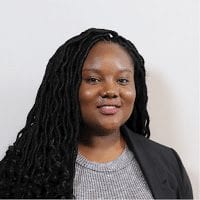
Latia Thomas is currently studying services and supply chain management She aspires to begin my career as a procurement specialist. She is currently serving as the APICS President for the Morgan State Student Chapter.
